Staff Reporters
South Africans are in an unre mitting state of apprehension, worrying about tomorrow because today looks gloomier than ever before.
The country’s political and socio-economic conditions seem to be eroding with each passing day. This, as some have pointed out, is the result of a lack of structural changes and coexisting develop ments that reciprocally reinforce each other. These shortcomings have, in the past weeks, put the current president in the crosshairs.
President Cyril Ramaphosa came under a volley of fire when three of his predecessors, Thabo Mbeki, Kgalema Motlanthe and Jacob Zuma, on different platforms, expressed their strong reservations about his integrity and squarely put the blame on him for the challenges plaguing South Africa’s sixth administration.
Veteran journalist, struggle vet eran and former South African Press Ombudsman Joe Thloloe has labelled these public attacks on Ramaphosa by three former heads of state as a national disgrace on all South Africans.
"Our problems have long sur passed the prevalent blame game.

Actually, it is a shame on all of us that our nation continues to slide in this downward slope whilst all of us are doing nothing but find someone to blame,” Thloloe told The Telegram Mbeki, giving a keynote address at the annual general meeting of the Strategic Dialogue Group (SDG), said Ramaphosa was under pressure because of the Phala Phala scandal.

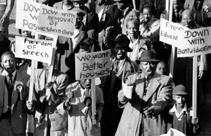
He suggested that the ANC could not escape the inevitable conver sation about his fate, saying party leaders needed to decide Ramapho sa’s future should he be impeached.
“Do we say to the president he must step aside, or do we say let it
continue through the parliamentary process? What is the impact of that in the public mind?” Mbeki asked.
He went as far as saying the ANC was being led by criminals.
“When you talk renewal of the ANC, you’re carrying too much bag gage of wrong people. You have to have the courage to face that you have a renewed ANC led by crimi nals,” he said.


At a media briefing held on the same day, Zuma accused Ramaphosa of being corrupt and kowtowing to the international community.
“Your president has committed treason,” he told a news confer ence in Johannesburg. "No president
should conduct private business while in office. It is inconsistent with the oath of office taken by (the) president.
“Our country’s problems are too big for a president who is busy hus tling on the side,” Zuma said.
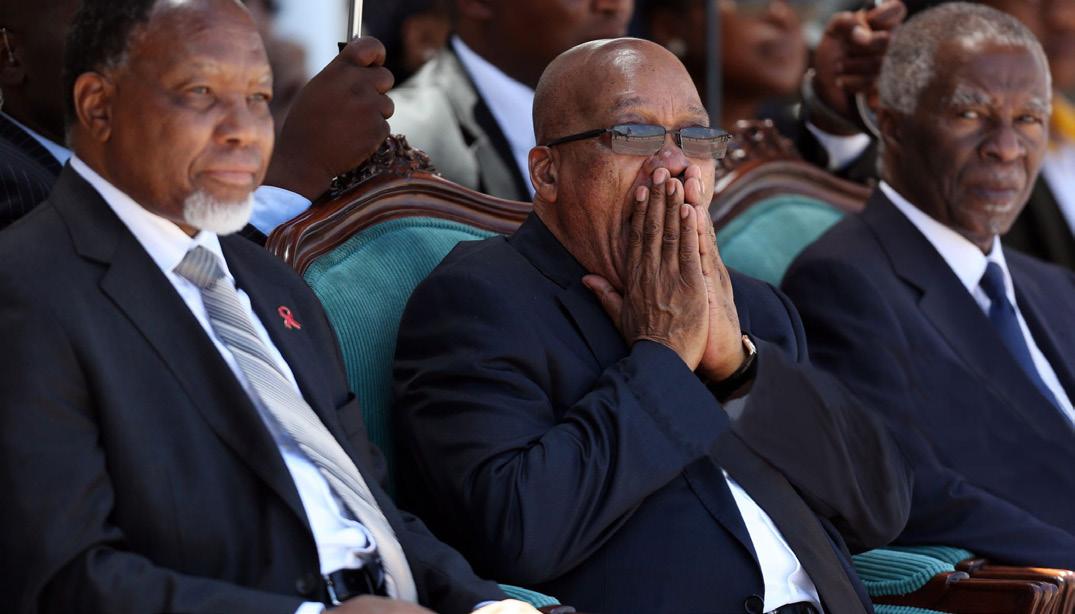



Former president of South Africa, and ANC’s former deputy president Kgalema Motlanthe also weighed in on Ramaphosa’s shortcomings.
Motlanthe said Ramaphosa should have responded to the nation and the agencies investigating the scandal from the outset.
THEFT OF GENERATORS CAUSES MAYHEM IN FREE STATE CLINICS PAGE 7 CAPE TOWN INTERNATIONAL JAZZ FESTIVAL IS BACK PAGE 18 QATAR’S CONTROVERSIAL FIFA WORLD CUP 2022 BRACES FOR BACKLASH SEE SPORT Story Continues on Page 2 By
@ telegramrsaT he Telegram ZA— SOUTH AFRICA { thetelegramlive.co.za } — FRIDAY, OCTOBER 30-NOVEMBER 12, 2022 — THE FREEDOM CHARTER VISION IS IN SHACKLES PAGE 11 Ramaphosa insists that he has a good relationship with former presidents Thabo Mbeki and Jacob Zuma, despite their public criticisms of his leadership recently. In reality, who is to blame for the downfall of the ANC? SHAME ON US FOR ALL THE MESS
Former presidents Jacob Zuma with Thabo Mbeki and Kgalema Motlanthe. Photo by James Oatway/Foto24/Gallo Images/Getty
Images
"Second-guessing as to what hap pened gives rise to lots of specula tion. And that's not good for the president, the president's image as well as the office of the presidency itself," he said.

Motlanthe became state presi dent after Mbeki’s recall. He was succeeded by Zuma.
These developments come as the ANC is preparing for its elec tive conference in December this year. President Ramaphosa will seek re-election as party leader, but a personal scandal could see him face an impeachment vote before the conference even takes place.
The scandal was ignited by the bombshell charges laid against him on June 1, 2022, by the former national spy agency boss Arthur Fraser.
He filed a criminal complaint against Ramaphosa, accusing him of money laundering and bribery to cover up a heist at the president's Phala Phala game farm in February 2020 where over $4m in illicit cash was allegedly stolen.
Ramaphosa has since confirmed the robbery but denied any wrong doing.
A three-person panel chaired by former chief justice Sandile Ngcobo will determine whether there is prima facie evidence to institute an impeachment inquiry against
Ramaphosa. Thloloe says there is nothing statesman about the utterances of the three former heads of state.
He says these types of accusa tions only serve to confirm the sad reality that South Africa has become a banana republic.
“Only one topic dominates dis cussions at every dinner table, in pubs, and all social gatherings – we all talk about how South Africa has
gone to the dogs, and yet we are doing nothing about it.
“In 1980, I was amongst those who were jubilant when Zimbabwe gained independence. I thought to myself, “here are the comrades who will show us the way,” today, (knowing how corruption has brought that exemplary nation to its knees), I am saddened by the realisation that we are following in the footsteps of Zimbabwe,” he said.
Thloloe said it was not in the interest of the country that South Africa remains racially and eco nomically polarised. He and the former oppressed and the former oppressors needed to cooperate in finding solutions to the country's problems.
“It doesn’t help that others would look down on us and say, "look they thought they could gov ern," because, at the rate at which we are going, we will all suffer, it is time that all South Africans do something about this situation,” he said.
Thloloe is the recipient of the Order of Ikhamanga in Silver. He received this honour for his excep tional contribution to and achieve ment in the field of the media, literary writing and journalism; he is also a freedom fighter who is respected for his contribution to the liberation struggle and his role in the transformation of the media in post-apartheid South Africa.
CRITICISM OF CYRIL RAMAPHOSA RATTLES THE ANC
By Staff Reporters
The harsh criticism of Pres ident Ramaphosa’s leader ship by his three predeces sors has elicited strongly worded reprisal from the ANC, further tearing the governing party apart.
Former leaders, Thabo Mbeki, Jacob Zuma and Kgalema Motlan the blasted Ramaphosa, laying the blame for the country’s woes.
KwaZulu-Natal province known for its support of former president Jacob Zuma drew first blood.
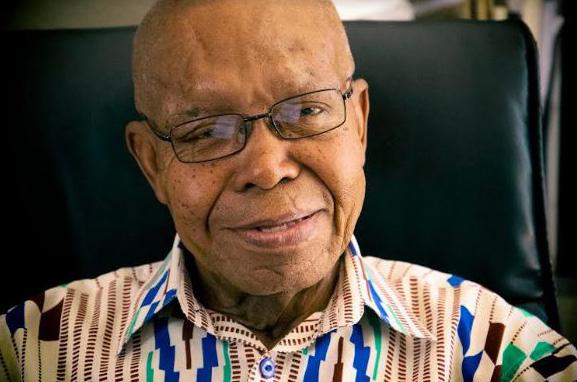
In a statement, provincial secre tary Bheki Mtolo said the criticism was a “strange occurrence wherein former leaders are attacking the sitting ANC president Cyril Rama phosa and the ANC publicly”.
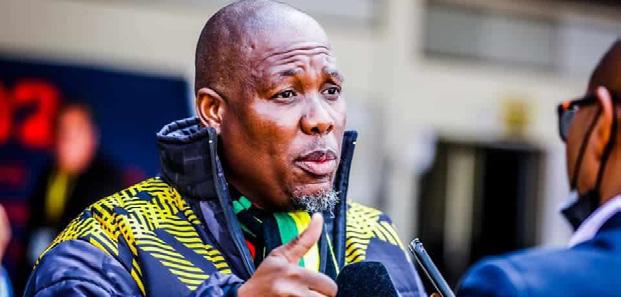
“On the 26th of August, we issued a statement informing the ANC rank and file – and the people of this country about our planned visit to KwaDakwadunuse to see President Zuma and to drink from his deep well of wisdom,” read the statement.
“The engagement with Msholozi followed another empowering engagement with President Thabo Mbeki.”
Mtolo further said party lead ers have committed themselves to rebuild the province and ensure that no ANC structure was left behind. It said it saluted its leaders.
“However, the ANC in KwaZu lu-Natal has noted a very strange occurrence wherein the above lead ers are attacking the sitting ANC President Cyril Ramaphosa and the ANC publicly. Clearly, such an exercise is eroding the standing of the organisation in society,” read the statement.
“Whilst we respect their rights, as enshrined in the Constitution, of freedom of speech, we respect fully request our leaders to exercise restraint.”
“Lastly, we are nursing a hope that our leaders will take a leaf out of President Nelson Mandela's leg acy. After leaving office, he spent his time as an elder and doing
what elders do, instead of attack ing a sitting president. He never publicly insulted or undermined leaders of the ANC – irrespective of how he felt about their con duct. He used internal processes to guide where he felt guidance was urgently needed.”
The Limpopo province followed its KwaZulu-Natal counterpart in calling three former party leaders to order over their public attacks directed towards Ramaphosa.
In a statement, the Limpopo pro vincial secretary Reuben Madadzhe said Ramaphosa should be given time and space to lead both the ANC and the country.
Madadzhe reminded the trio that they are all ex-officials of the national executive committee and should raise their views in closed ANC meetings.
The presidency also did not take the attacks lying down as The Cit izen reported. Presidency spokes person Vincent Magwenya briefed the media at the Union Buildings in Pretoria to defend his boss.
“President Ramaphosa's expec tation of former presidents is that their presence is that of elders who are there to guide and support. Of course, they will criticise where they see fit and necessary, however, what would mostly be appreciated is constructive engagement that contributes to taking the country
forward,” Magwenya continued:
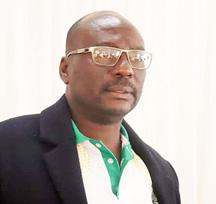
“To shout at President Rama phosa from the rooftops does not in any shape or form aid all these endeavours. At any given time, all former presidents know how to get hold of President Ramaphosa and do have that direct line and access to him should they wish to con tribute constructively,” he added.
It is also reported that Rama phosa was “applying his mind” regarding the State Capture Com mission’s recommendations made against some ministers.
“There’s a process behind that… the president has to engage the concerned members of the exec utive.

“[He] has to independently seek a legal opinion to inform him on the veracity of the issues over and above what the commission has outlined.
“The president [also] has to apply his mind in a manner that will get into a decision that is rational, notwithstanding the fact that he is empowered by the Constitution to act in this regard,” he said.
2 NEWSFRIDAY, OCTOBER 30-NOVEMBER12 CONTACT US 9 Main Road Farrarmere, Benoni, Johannesburg Published by The Telegram Media NEWS DESK +27 10 448 1108 EDITOR Themba Khumalo thembakhumalo@thetelegramlive.co.za MANAGING EDITOR Mbangwa Xaba mbangwaxaba@thetelegramlive.co.za NEWS newsdesk@thetelegramlive.co.za PRODUCTION production@thetelegramlive.co.za NEWS DESK advertising@thetelegramlive.co.za DISTRIBUTION distribution@thetelegramlive.co.za Story Continued from Page 1
KZN provincial secretary Bheki Mtolo has come to Ramaphosa’s defence.
Photo by ulpza.com
Limpopo provincial secretary Reuben Madadzhe said Ramaphosa should be given time and space to lead both the ANC and the country.
Journalist and media freedom stalwart Joe Thloloe photographed in his study. Photo by Chanel Retief
TREVOR NOAH’S VIEW OF RACIST
SUNAK
By Nadia Khomami
The row began with a single call to a UK radio station, was stoked by one of Amer ica’s best-known comedians and ended with former cabinet min isters wading in – and Downing Street, too.
At the heart of the furore: a claim that Rishi Sunak had experienced a racist “backlash” after becoming the UK’s first British-Asian prime minister.

For many, how something across the Atlantic created such a kickback in Westminster is an example of the dangers of drawing direct cultural and political parallels between two differing nations – and the power of Twitter.
“There has been no racist back lash against Sunak from anybody with any public standing in Brit ain,” Sunder Katwala, director of British Future, a think tank focusing on identity and integration, immi gration and opportunity, told the Guardian.
“This shows more solid anti-prej udice norms in our media and poli tics than in the US.”
He was reacting to a segment by Trevor Noah on the US satiri cal news show, The Daily Show , in which he alleged that Britons were concerned that “Indians are going to take over Great Britain”.

His polemic was inspired by a telephone caller on LBC Radio who said Sunak was “not even British” and “doesn’t love England like Boris does”.
The caller, who claimed to be a Tory party member, added: “Could you imagine me becoming the prime minister of Pakistan or Saudi Arabia? No. These things matter. We’re talking about England – 85% of English people are white.”
“Watching the story of Rishi Sunak becoming England’s first prime minister of colour, of Indian descent, of all these things and then seeing the backlash, is one of the more telling things about how people view the role that they or their people have played in history,” Noah said in his response.
“You hear a lot of the people saying ‘Oh, they’re taking over, now the Indians are going to take over Great Britain and what’s next?’ And I always find myself going: ‘So
what? What are you afraid of?’”
The comedian compared the caller to Tucker Carlson, the right wing Fox News presenter, which led to accusations that he was “project ing” American views on race on to Britain. Former cabinet minister Sajid Javid, who was Britain’s first non-white chancellor and home secretary, said Noah was “simply wrong” and called his monologue “a narrative catered to his audience, at a cost of being completely detached
from reality”.
DIVIDES OPINION
“It’s an important problem for America, that in the Trump era people like Steve Bannon managed to dissolve the boundary between extreme politics and the Republican mainstream.
“You have Republican candidates having to be ambivalent about rac ism or prejudice, violent protests, false conspiracy claims.”
In the UK, he said, even the likes of Nigel Farage are still “aware of where that boundary is”.
Tom Holland, historian and author, added that the “inability of American liberals to understand the world beyond the US in anything but American terms is a thing of wonder. The likelihood of the right wing party in the US choosing a Hindu as its leader is, I would agree, effectively zero.”
Plenty of people agreed with Noah, however. Dr Shola Mos-Shog bamimu, a British-Nigerian activist and author, said the presenter was “spot on”.
“There was and is backlash at Rishi Sunak’s appointment as Brit ain’s first Asian prime minister,” she wrote. “Don’t mind the liars denying it with their gaslighting. It’s what some Brits do best. They are so bold with their Caucacity. Keep speaking the truth.”
Though Sunak’s appointment as PM was a historic moment for the UK, it drew a dividing line between those who celebrated the ascent of a Hindu politician and those who emphasised his policies would only deliver “more violence” for ethnic minorities. And though rac ism in the UK might not always be overt, critics said, there are plenty of examples of a more insidious form of oppression.
Britain, Javid insisted, was “the most successful multiracial democ racy on earth and proud of this historic achievement”.
Asked whether Sunak believes Britain is a racist country, a Down ing Street spokesperson said: “No he doesn’t.”
Former Tory leadership contender Rory Stewart called Noah’s com ments “completely bizarre” and “lazy stereotyping”.
It is hard to deny the LBC Radio caller’s racism, Katwala explained, but the strength of feeling boils down to a simple belief – that while there is a “toxic rejectionist fringe with an excessive share of online voice” who might be more inclined to contact radio shows, their bigotry should not be held as representative of what Britons think.
“It’s important to understand the differences between the US and the UK,” he said.
“It’s not as if representation doesn’t matter at all, but only measuring success on these terms is incredibly narrow,” Maya Good fellow, author of Hostile Environ ment: How Immigrants Became Scapegoats, told the Guardian.
“It ignores racial disparities in Covid deaths, higher rates of pov erty among certain racial groups or the Windrush scandal, which was just four years ago.
“The fixation on trickle-down equality obscures a thoroughgoing discussion about the way racism and, crucially, racial inequalities, change shape but continue to run deep in Britain.”
theguardian.com

–
3NEWS FRIDAY, OCTOBER 30-NOVEMBER12 Trevor Noah alleged on the US satirical news show, The Daily Show that Britons were concerned that “Indians are going to take over Great Britain”. Photo by variety.com
‘BACKLASH’
Rishi Sunak’s appointment as PM is a historic moment for the UK. Photo by Dan Kitwood/Getty Images
PASSES THE E-TOLL
POTATO’ TO GAUTENG GOVERNMENT
By Roy Cokayne
Payment of Sanral’s R47bn debt to be split between the national government and Gauteng provincial govern ment.
The national government has passed the ball on the controversial e-toll scheme on the Gauteng Free way Improvement Project (GFIP) to the Gauteng provincial government for a final decision on its retention or possible scrapping.
Finance Minister Enoch Godong wana said on Wednesday that to resolve the funding impasse, the Gauteng provincial government has agreed to contribute 30% to settling the SA National Roads Agency (San ral) debt and interest obligations while the government covers 70% of this debt and interest obligations.
Godongwana said Sanral’s GFIP debt “as of today is R47 billion”.
“Gauteng will also cover the costs of maintaining the 201km and asso ciated interchanges of the roads and any additional investment in roads will be funded through either the existing electronic toll infra structure or new toll plazas, or any other revenue source within their [Gauteng provincial government] area of responsibility.

“Government proposes to make an initial allocation of R23.7 billion from the national fiscus, which will be disbursed with strict conditions,” he said. The Medium-Term Budget Policy Statement (MTBPS) said the R23.7 billion is allocated to Sanral to pay off government-guaranteed debt but this allocation is condi tional on a solution to Phase 1 of the Gauteng (GFIP).
Godongwana stressed that the government needs to move on from the debates of previous years about e-tolls and find solutions to this challenge.
If not e-tolls, probably something else Transport Minister Fikile Mbalula said during a media briefing on
Monday about the outcome of the Special Investigating Unit (SIU) and Road Traffic Management Organi sation (RTMC) investigations into vehicle licensing and registration problems that he would be hosting a media conference on e-tolls in two weeks.
It appears that Mbalula will pro vide more clarity on the future of e-tolls then, but has previously indi cated that when the government scraps something – and he stressed at the time that he was not saying e-tolls will be scrapped – it is nor mally replaced by something else.
Focus on Sanral Godongwana added that “we have been dilly-dallying” with the e-tolls decision for the past seven years and it has impacted on Sanral’s financial position.
“Therefore, we have come to the conclusion that we are going to close this matter once and for all,”
he said, adding that national gov ernment cannot prescribe to the Gauteng provincial government what decision it must take about the e-toll scheme.
“If they decide to continue with the tolls purely for or to recover maintenance costs or to look at other resources for funding, we can’t prescribe.
“If they decide to collect [e-tolls] for whatever reason, it’s their own business,” he said.
Godongwana added that the gov ernment wants to make sure that Sanral improves its balance sheet and continues to do what it does –maintain the roads.
He said it was a decision of the Gauteng Parliament to transfer the GFIP e-toll scheme to the national government in line with 2010 Fifa World Cup projects.
“It was not necessarily a national project in the first place but because they did not have the capacity, it
was transferred to national.
“Now people don’t want to pay. That is a straightforward thing, which is a political decision,” he said.
Godongwana said the onus is on the national government to salvage Sanral and “get it out of the equa tion”.
‘Detailed information’ this week Mbalula said in a statement that it has taken protracted consultations between the National Treasury, the Department of Transport and the Gauteng government to make a firm determination on the future of e-tolls and a funding model for the GFIP.
“The allocation of R23.7 billion in the adjustment budget will go a long way in ensuring that Sanral is able to meet its debt repayment obligations and maintain a healthy balance sheet,” he said.
The statement said Mbalula and the Gauteng government will pro vide detailed information on the way ahead for e-tolls and the GFIP this week.
Long road … Organisation Undoing Tax Abuse (Outa) CEO Wayne Duvenage said that after a decade of defiance, seven transport ministers and billions in uncollectable debt, government has finally acknowledged the end of e-tolls, with the MTBPS including the transfer of R23.7 billion from Treasury to Sanral. Duvenage said Sanral will get a further R3.74 bil lion moved from non-toll roads to the GFIP roads through the Depart ment of Transport budget vote.
“This is a clear indication to Outa that the e-tolling of the Gaut eng freeways will be halted, and the funding mechanism has been shifted to National Treasury and Gauteng provincial government allocations, a solution Outa pro posed to the government over a decade ago.
“Outa believes the MTBPS has signalled that Sanral’s pressure to
finance the government guaranteed GFIP bonds through the failed e-toll scheme is now over.

“There is no need for the Depart ment of Transport, or Sanral, to continue with the declaration of the Gauteng freeways as tolled roads.
“Accordingly, we believe the Minister [Mbalula] will be making an announcement to put paid to the e-toll scheme in the next week or so,” he said.
Duvenage thanked the thousands of motorists for standing their ground alongside Outa’s collateral challenge in the courts against e-toll defaulters, and said it remains steadfast on this matter.
It was Outa’s biggest and longest campaign, which ran for over 10 years and was supported by thou sands of contributing supporters, representing a massive victory for civil society, he added.
Unpaid tolls
“As far as Outa is concerned, those who didn’t pay e-tolls, will no longer have to pay any outstand ing bills.
“Unfortunately for those who paid e-tolls, we believe they will not be able to claim these payments back, as the legislation was not unlawful and was valid at the time.
“When the toll declaration is withdrawn, it will not be retrospec tive,” he said.

Duvenage added that Outa’s lawyers are currently representing motorists in 2 028 cases in which Sanral has issued summonses – 99 in the high court and 1 929 in mag istrates’ courts – to defend claims by Sanral of more than R265.05 million in unpaid e-tolls bills.
He said Outa is continuing this defence until these matters are for mally removed from the court rolls.
Duvenage said that in the end, it was an extremely costly war between Outa and the government, which the government lost.
“But, as it is with all government mistakes, the people will have to pick up the costs,” he said.
– moneyweb.co.za
4 NEWSFRIDAY, OCTOBER 30-NOVEMBER12
GOVERNMENT
‘HOT
e-toll consists of the electronic toll collection processes employed by South Africa's roads agency SANRAL on selected toll roads or toll lanes, subject to the Sanral Act of 1998.
By Marecia Damons
Civil society groups respond to Medium-Term Budget Policy Statement

● Civil society groups have wel comed the extension of the R350 grant but believe it’s not enough to make a meaningful impact in the lives of millions of unem ployed people.
● This follows Minister of Finance Enoch Godongwana’s Medium-Term Budget Policy Statement (MTBPS) at the City Hall on Wednesday.
● Godongwana said the big gest allocations of the budget are directed to the education, health and social development sectors.
● He said the country’s economy is expected to grow at an aver age of 1.6% per year for the next three years.
Civil society groups have welcomed the extension of the R350 grant but believe it’s not enough to make a meaningful impact in the lives of millions of unemployed peo ple. This follows Finance Minister Enoch Godongwana’s Medium-Term Budget Policy Statement (MTBPS) at the City Hall in Cape Town.
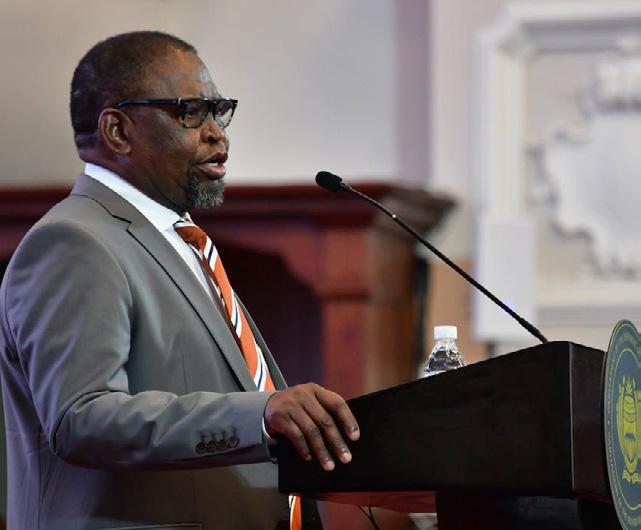
In addition to extending the Social Relief of Distress (SRD) Grant until March 2024, Godongwana announced bailouts for state-owned entities (SOEs). He said that the country’s economy is expected to grow at an average of 1.6% over the next three years. “Over the next three years, spending increases will be prioritised to improve invest ment in infrastructure and boost the budgets for safety, security and
fighting corruption.”
More than 60 people affiliated with the Back2Work Campaign, the Peoples’ Health Movement, Move ment for Change and Social Justice Delegates, gathered outside Parlia ment ahead of the budget speech
to discuss issues related to unem ployment, public health, municipal services, and gender-based violence. Picketers held up placards read ing: “Improve public health”, “No to budget cuts”, “Stop privatisation of our energy and transport” and
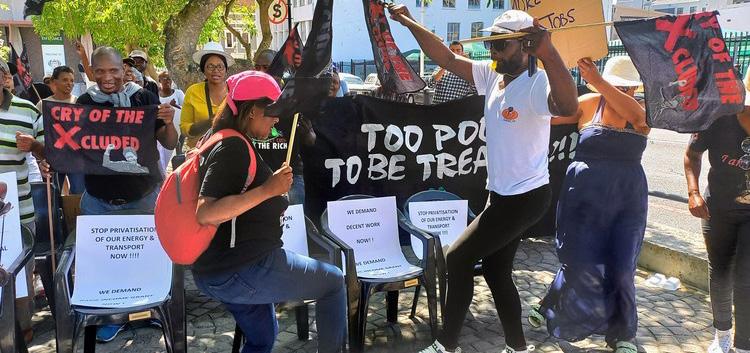
“We demand decent work now”.
In response to the MTBPS, Regi nald Mapempeni, secretary of the Back2Work campaign, said, “While we appreciate the R350 SRD grant, there are problems with it because everybody who is supposed to
receive it does not get it. And there are so many hiccups before you can benefit from the grant. They don’t make it easy for people to apply and enjoy the grant.”
Langa resident Luvo Nabe, who joined picketers, said Godongwa na’s budget was full of “empty promises”.
“He mentioned nothing about the Basic Income Grant, only the SRD grant, which a lot of people don’t even get,” said Nabe. He also said he wanted work with the Expanded Public Works Programmes to last more than three to six months.
Madoda Cuphe of the Back2Work Campaign said, "There are 13 mil lion people who want to work but cannot. Where does [Godongwana] think these people are getting money to sustain their families? Every unemployed person needs to be given a Basic Income Grant of R1,500.
"Government keeps saying they can't afford it. But the government has forgotten the July unrest. You can't have millions of people going hungry. If something doesn't change, the situation is going to become dire," he said.
Godongwana also said that spending on building new and rehabilitating existing infrastruc ture will increase from R66.7-billion to R112.5-billion in 2025/26. This includes roads, bridges, storm-water systems and public buildings.
He said the largest allocations go to education, health and social development sectors.
But Nowhi Mdayi, chair of the People's Health Movement, said communities are sceptical that they will see improvements on the ground. "In Gugulethu, clinics are the same size as they were in 1972. These facilities not only provide ser vices to the Gugulethu community but also to surrounding areas. We need intervention," she said.
– groundup.org.za
“GOVERNMENT
HAS FORGOTTEN THE JULY UNREST. YOU CAN’T HAVE MILLIONS OF PEOPLE GOING HUNGRY.”
5NEWS FRIDAY, OCTOBER 30-NOVEMBER12
More than 60 people affiliated to several civil society and grassroots organisations picketed at the gates of Parliament on Wednesday 26 ahead of Finance Minister Enoch Godongwana’s Medium-Term Budget Policy Statement. Photo by Marecia Damons
Enoch Godongwana’s Medium-Term Budget Policy Statement was, according to Langa resident Luvo Nabe, full of “empty promises”. Photo by GCIS
If your answer is yes, worry no more!
days of expensive adoption process,
can cost anything between R12000 to R20000
are all gone.
now offers a free service to qualifying Parents/Guardians who wish to
process
children.
Gauteng Department of
new
in
a child a home and you are over the age of 18 years and meet the criteria, you can adopt a child.
A child is adopted when the child is placed in the permanent care of a person in terms of a court order.
The Gauteng Department of Social Development is now rendering child adoption services to prospective parents at no cost.
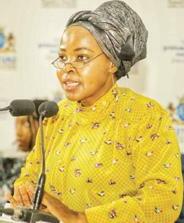
Purpose of adoption
a) To protect and nurture children by providing a safe, healthy environment with positive support: and
To promote the goals of permanency planning by connecting children to other safe and nurturing family relationships intended to last a lifetime.

Who can be adopted?
Any child may be adopted if –
(a) The adoption is in the best interest of the child.
(b) The child is an orphan and has no guardian or caregiver who is willing to adopt the child.
(c) The whereabouts of the child’s parent or guardian cannot be established.
(d) The child has been abandoned.
(e) The child is in need of a permanent alternative
Who can adopt child?
A
may be
in
person
The South African Council for Social Service
Adoption
Practice were
(SACSSP) in conjunction
Department of Social Development and the Services for Children
that the Social Workers in the Province are well
registered with the SACSSP to render the adoption services.
statutory process facilitated through the Children’s Court and there
to
that promote the goals of permanency planning that
intended to last a lifetime; it
support, and it must be rendered by registered and accredited Social Service Practitioners as it is now a field of specialty.
continuous
Tel: +27(0)11 355 7600/ +27(0)11 227 0000 69 Commissioner Street, Thusanong Building, Johannesburg 2107
The
which
or more,
Government
adopt
“The
Social Development is leading this
in the province, and hereby wishes to inform the citizens about this
b)
placement. (f) The child is the stepchild of the person intending to adopt. (g) The child’s parent or guardian has consented to the adoption
child
adopted –(a) jointly by –(i) a husband and wife (ii) partners
a permanent domestic life-partnership or (iii) other persons sharing a common household and forming a permanent family unit. (b) a widow, widower, divorced or unmarried person. (c) married
whose spouse is the parent of the child or by a person whose permanent life-partner is the parent of the child. (d) biological father of a child born out of wedlock or (e) foster parent of the child. HAVE YOU ALWAYS WANTED TO ADOPT A CHILD AND BE A PARENT? Morakane MosupyoeMEC For Social Development 1. EKURHULENI 2. JHB 3. SEDIBENG 4. WEST RAND 5. TSHWANE Ms Meme Ngema Ms Sibongile Kuboni Ms Salaminah Mosia Ms Thelma Hyde Ms. Madikubu Dolo Ms. Shadi Ngqaza Ms. Sinah Phiri Ms. Lebohang Mokoka Ms. Lolo Mohlala Ms. Ida Strydom 082 554 4042 066 291 4866 082 414 6910 082 414 6845 071 492 1062 082 469 8797 082 410 6564 079 529 4601 082 460 5830 082 331 0879 REGION NAMES CONTACT NUMBERS What are requirements of a prospective adoptive parent? (a) fit and proper to be entrusted with full parental responsibilities and rights in respect of the child. (b) willing and be able to undertake exercise and maintain those responsibilities and rights. (c) Over the age of 18 years. (d) Properly assessed by an adoption Social Worker Children’s Second Amendment Act, Act No. 18 of 2016 introduced the inclusion of a Social Worker in the employ of the Department of Social Development into the definition of “Adoption Social Worker” to render adoption services. These amendments have brought forth new and certain responsibilities in terms of its implementation of Adoption as a specialty service that Social Workers in the employ of the Department of Social Development did not possess. The Child Protection Organisations and Social Workers
Private
championing this service in the province.
Professional
with National
Directorate has ensured
capacitated and
is a
are strict legal procedures
connects children
nurturing family relationships
requires
monitoring,
Where can you go to apply for adoption in Gauteng? This message is brought to you by the Gauteng Department of Social Development Growing Gauteng Together For more information, please contact our offices at 011 355 7600/ 011 227 00 00
THEFT OF GENERATORS CAUSES MAYHEM IN FREE STATE CLINICS
 By Molefi Sompane
By Molefi Sompane
With no end to load shedding in the fore seeable future in South Africa, the community of QwaQwa was hopeful when the procurement of generators was announced. But this glimmer of hope has turned into a tunnel of darkness following the theft of gen erators, leaving 28 clinics stranded.
This is the latest devastating financial blow to hit the province in its efforts to provide quality health care.
Storage of medication is severely affected.
The generators provide power to keep cold storage units running for medication requiring refrigera tion. But instead, nurses have been forced to make use of cooler boxes.
Dr Hendrita Matshoba, the Eliz abeth Ross District Hospital CEO, expressed her frustration.
The hospital and its staff, which supports the 28 local clinics, are under severe strain during the ongoing power cuts.
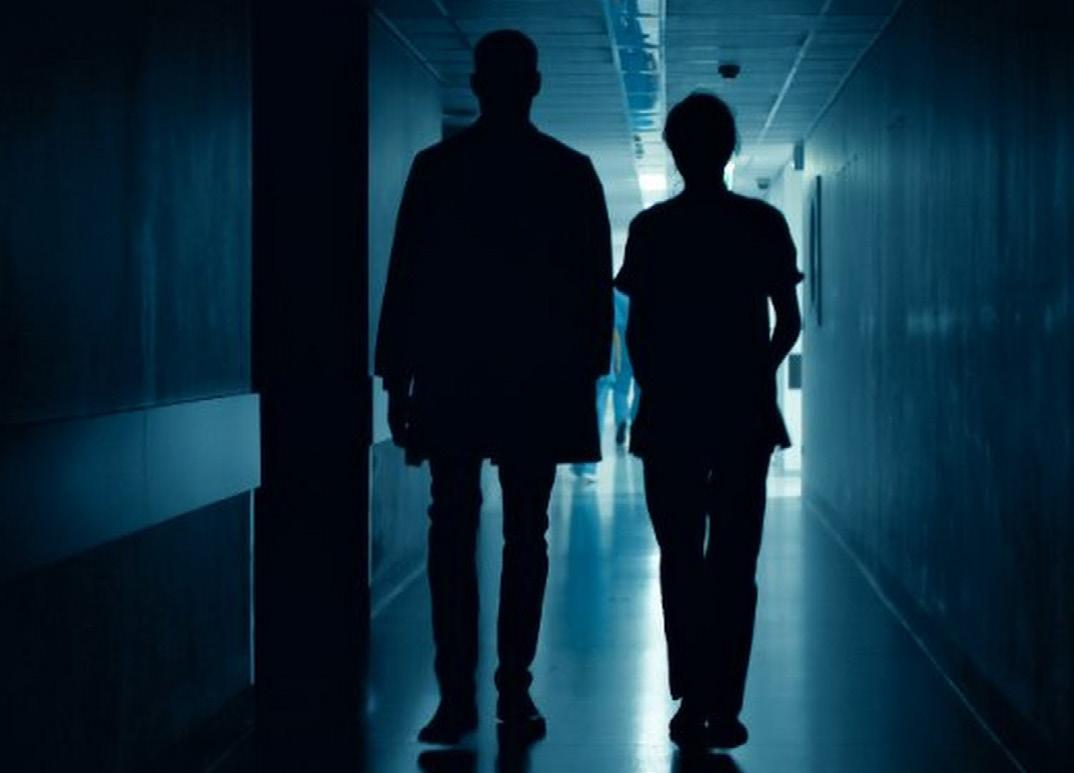
“Given the current load-shedding situation, generators were procured for clinics, but they were stolen. Maybe they were stolen for home use or sold, but the constant power
cuts are causing problems with stor ing medication,” she said.
Matshoba said that the use of cooler boxes has been ongoing even before the procurement of genera tors.
“Our nurses collect medication from other centres where storage hasn’t been affected by power cuts and the theft of generators,” said Matshoba. Patients at risk
Sister Anne Seleso* said that some medications were still being given to patients even though cold stor age isn’t guaranteed at this stage. She highlighted the threat it poses to patients.
“If there’s a power outage, we know that a huge amount of med ication should be discarded, espe cially if used. We’ve never had a generator. I think only five are left among the 28 clinics, and these generators were given to clinics with higher capacities,” said Seleso.
Meanwhile, a pharmacist, who wished to remain anonymous, said specifications about storage instruc tions are printed on the labels of the medicine or packages.
“It’s a good idea to check. We also point out any special storage recommendations. Some medicines must be stored in a fridge. I want to believe that all our clinics are adher ing to this because some medication
he said.
added that even at home, patients are required to store medication correctly.
protect the medication in
home, don’t store drugs where they can be exposed to extreme temperatures or excessive light or moisture. Avoid storage locations such as the bathroom, above the
or on a windowsill. Most med ications should be stored at room
temperature. For example, he said,” store medicines on a shelf or in a closet and keep them out of reach of children,” he said.
Patients in the dark Health-e News visited a clinic in Phuthaditjhaba that services over 5 000 patients a month. Patients denied knowing the importance of storing medication correctly, as advised on the packaging.
Tello Mopedi said: “If nurses told us how we should store them, we would. I received my medication but wasn’t told that I should read the instructions inserted in the box.”
‘Let’s fight crime together’ Dr Matshoba admitted that some medication not stored accordingly would not serve its purpose.
“Such medicines can expire quickly if they are improperly stored at room temperature, becom ing toxic or less effective,” she said. She called on the community to fight crime and vandalism on vital infrastructure.
“These generators are serving individuals and not the commu nity as intended. Our people must help the government by protecting infrastructure from theft and van dalism.”
– Health-e News
* Not her real name

7NEWS FRIDAY, OCTOBER 30-NOVEMBER12
could be dangerous if not stored as they should,”
A list of medications requiring refrigeration 1. Eye and eardrops: – most eye/ ear drops can be kept at room tem perature for 28 days after opening. ● Chloramphenicol ● Cyclopentolate ● Latonoprast ● Latanoprast/Timolol ● AzaSite 2. Reconstituted Antibiotics: –once reconstituted, most need to be discarded after 1 to 2 weeks. ● Amoxicillin ● Erythromycin ● Augmentin 3. Tablets: ● Leukeran ● Alkeran ● Ritonavir ● VePesid 4. Injections: ● All insulin: – Vial in use may be kept at room temperature for one month. ● Interferons, e.g., Pegasys, Forteo, Rebif. ● Byetta – The device in use can be stored at room temp for up to 28 days. ● Victoza – The device can be stored at room temperature for up to 28 days. ● All vaccines ● Caverject ● Botox ● Humira ● Epogen ● DDAVP ● Aranesp ● Enbrel ● Neupogen ● Procrit ● Sandostatin 5. Other: ● Pulmozyme Nebuliser solution MUSE urethral application – can be stored at room temperature for up to 14 days. ● Rapamune ● Miacalcin Nasal ● Phenergan Suppositories ● Regranex ● This list is not exhaustive. Importance of storing medication correctly Medicines must be stored correctly, so they don’t degrade and lose effec tiveness. The pharmacist
“To
your
stove
INVESTIGATING THE HUMAN COST OF CONFLICT GOLD
A DW journalist has been given unprecedented access to rebel-controlled gold mines in the Democratic Republic of Congo. Miners and civilians are forced to risk their lives, while the wealthy buy gold in the global north.
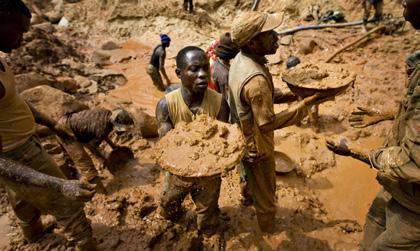 By Mariel Müller
By Mariel Müller
We've been waiting for hours to meet rebel leader William Yaku tumba. As darkness falls, a man who had introduced himself as Raymond, Yakutumba's secretary general, assures our group of journalists that the rebel strong man is marching through the forest that surrounds Misisi town with his security escort.
He and some other rebels are drinking beers in a hideout, which from the outside looks like a hotel closed for construction. But from behind a barrier, it serves as a base for the Mai-Mai Yakutumba rebels who are from one of the most active groups in eastern Democratic Republic of Congo (DRC).
The Mai-Mai Yakutumba are feared for their brutality. They have repeatedly attacked an ethnic group called the Banyamulenge, a Tutsi group, that they say doesn't belong to the DRC. They drive them out, indiscriminately raping and killing as they burn down entire villages.
'Friends in high places' The rebels can move freely without having to hide because they work together with the army, Raymond explains.
"A colonel of the Congolese army is my good friend," he brags, calling what he says is the colonel's num ber. He has a brief conversation on speakerphone -- "proof" for the international journalists.
He shows us pictures on his cell phone: His rebel colleagues posing with AK47s and other heavy weap ons as children stand among them. They all wear uniforms he claims they stole from defeated Congolese army soldiers.
"We have all kinds of uniforms. If I want to, I can become a police officer." He joined the rebels after his whole family was killed when
he was 9 years old, he says. They see themselves as a self-defence group against their enemies.
We wait in vain. Yakutumba never shows up. But we receive his permission to enter two mines that the group controls: Mitondo and Makungu, near Misisi town.
Who controls the mines?
According to a recent UN report, the group not only controls these two mines but also the routes to them and a vast area around them.
Our journey brings us to Nyange village, located beside the mines. But the village chief is not happy with our permits. Nor is he convinced by our letter stamped by the governor of South Kivu region. It seems the local chief doesn't want us to go there.
Officially, the mine is controlled by the local authorities and the mining ministry, but after hours of discussions the village chief even tually admits to our local contact: He can't let us go to the mines - it's not safe because the rebels control it, not him.
After a long conversation, we admit to him that the rebels have given us their permission to visit.
He's stunned. And lets us pro ceed. But only after we agree to be accompanied by a police officer, a soldier, an intelligence officer,
the son of the chief, and a man who introduces himself as part of the local mining cooperative - but whom we later learn is actually one of the rebels.
Rebels in red We notice all rebels we meet wear something red. Red trousers, red hats, a red ribbon somewhere. Red is their distinguishing feature so that villagers know who they are. They live among the villagers. Everyone knows they control the mine and tax the people working there.
According to the UN report, the Mai-Mai have been in control since December 2021, when they forced government troops out.
The Mai-Mai appointed a parallel administration to govern the mine, says the UN report, which miners confirm.
According to the report, up to 150 diggers are at the site, which produces between 1 and 2 grams of gold per week.

Miners extorted At the Mitondo mine, our local con tact manages to distract our entou rage, allowing us to hide in one of the narrow tunnels and speak to one of the miners, who we call Michael. He tells us that he has to pay a "tax" of a few dollars each month to the rebels just to access
the mine.
Together with different govern ment taxes and the contribution for the mining cooperative, there's not much of his salary left on which to survive.
"They take over what is most lucrative. They know exactly which mine is producing the most gold, down to which tunnel," Michael tells us.
In metre-wide tunnels that feel overwhelmingly hot, he scrapes out a gold-bearing rock. He tells us about their special breathing tech nique to help deal with the stifling heat. Flat, regular breaths to prevent fainting. "When you go to work, you just pray to God. Because we're feeling like it's a death sentence," he says
Often it is - when the mines cave in. Six years ago, more than 20 people were buried alive.
Another digger, Patrice, remem bers it well. "I was there with my three brothers and other miners. All of them were trapped inside the mine. Up until now, their bodies are still inside. I was sad, really sad. But I can't be sad for long. I have to earn a living."
Other miners have similar stories. They say the Mai-Mai are never far away, even now that they're hiding further up the mountain because they were told that we were coming.
Later, we confronted the Mai-Mai Yakutumba via WhatsApp about these allegations, but they never replied. Local government officials also repeatedly declined our inter view requests. Several sources tell us that the rebels often work together with local authorities and even share profits with them.
Surviving a rebel attack
We later meet Esther Nanduhura, who is from the Banyamulenge eth nic group targeted by the rebels. She describes how she survived an attack by the Mai-Mai Yakutumba.
"They found us at the place we had sought refuge and they killed three people. Then they murdered my father-in-law and injured my mother-in-law," she recalls.
Both of them were over 80, she says. She and her family were forced to march for days with no food. Then they took her husband. She never saw him again. Later she learned he had been hacked to
death with a machete. They killed dozens, displaced hundreds in sev eral attacks.
Now Esther is safe, sheltering with her eight children at a friend's house in a bigger city.
She is aware that gold from the DRC ends up in the rich part of the world; people there pay a lot of money for it.
"The Mai-Mai sell gold to white people to buy weapons - that's why they sell the gold. I want to tell these white people to stop buying from them. So, they stop killing us with these weapons."
For Esther it is a simple equation: As long as armed groups can reap profits from gold mining, they will keep earning the cash to kill.
Fake gold certificates
The Democratic Republic of Congo has some of the purest gold in the world. Belgian businessman Yasin Karim Somji tells us that he is convinced of the purity of the gold in Misisi and other places in the North and South Kivu regions.

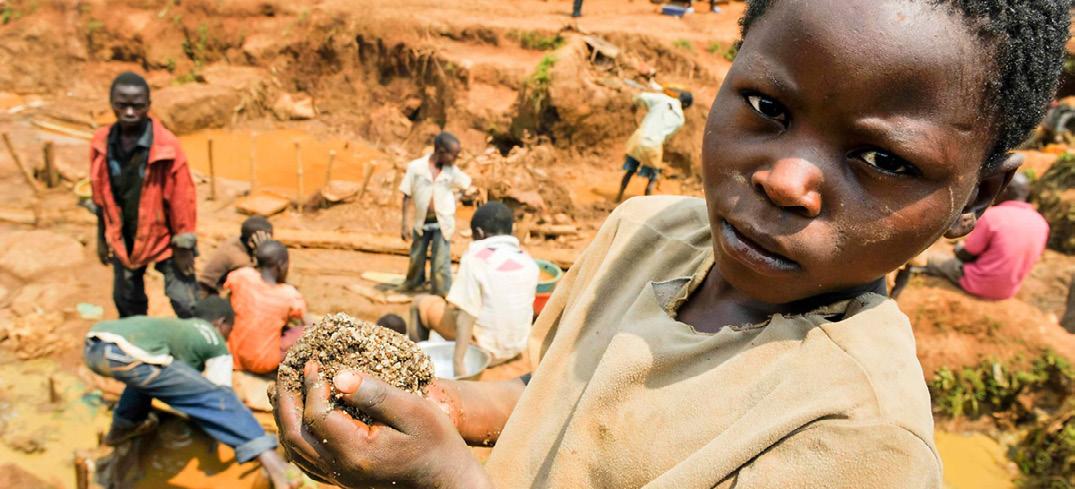
He plans to soon open the first gold refinery in the DRC and export the gold to Europe, Asia and Amer ica.
"At the moment we are in long discussions with the government. They will check all artisan mine workers who will come here; they will try and trace it and maybe it will help. I hope it will help," Somji says.
But it will be hard to make sure the gold that comes out of the region is not linked to rebels. Trad ers tell us that tracing certificates that indicate the origin of the gold are already altered in the first city they reach, Bukavu, in the DRC's East.
From here it is often smuggled or officially exported - with fake certif icates - across the border to Rwanda and other East African countries. Then it is transported to Dubai, a worldwide trading centre for gold.
Eventually, it's sold to the end consumer in Europe, the United States and other countries.
The vast majority of gold from DRC is smuggled illegally across the border.
When it reaches its final desti nation, it is virtually impossible to know where it originally came from. – allafrica.com
8 NEWSFRIDAY, OCTOBER 30-NOVEMBER12
Illegal gold trade is at the centre of violent struggles for power in the Democratic Republic of Congo. Photo by cfj.org
Children
are forced to work in mines, exposed to all sorts of diseases and the possibility of accidental death.
Photo by Steven Wassenaar / Hans Lucas
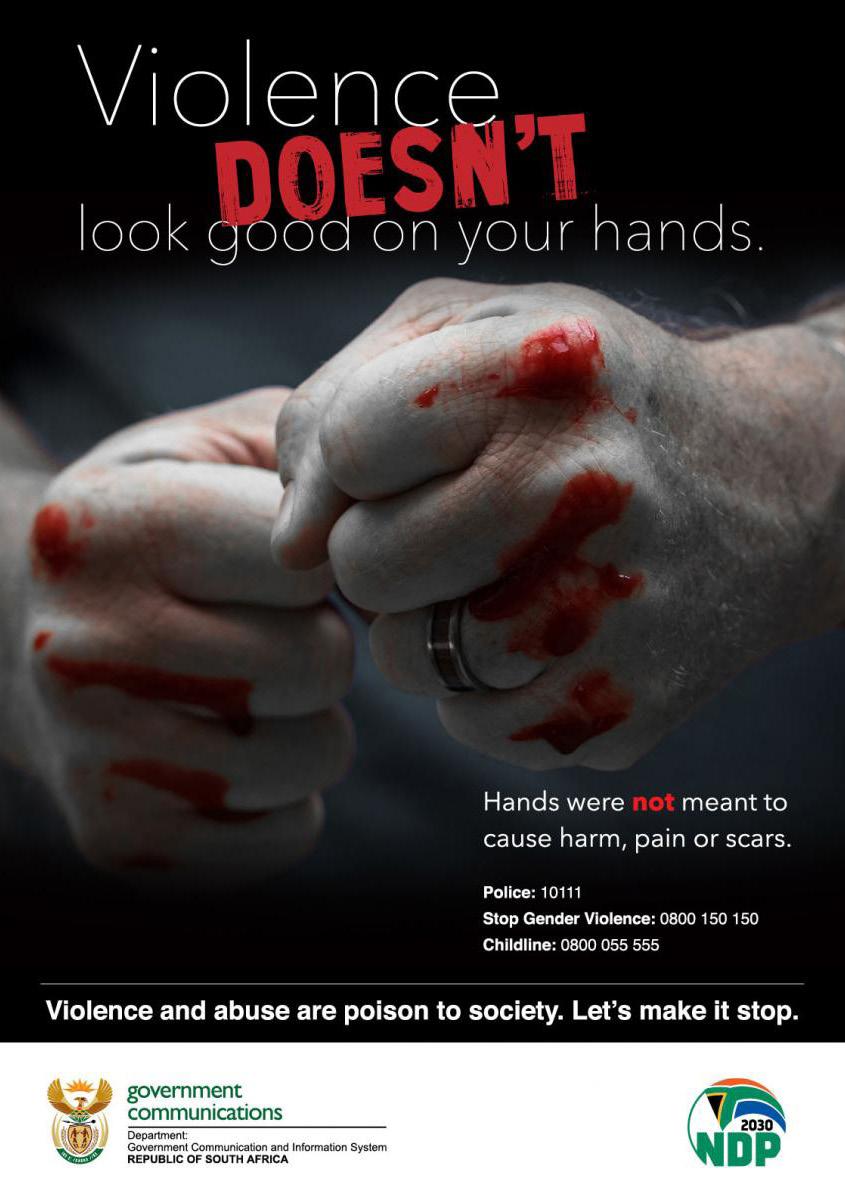
How do cybercriminals think when they enter your organ isation? What do they look for? And how can you use this insight to protect your busi ness?
Hackers want in. They want into the business, its data and its details because cybercrime is a multi-bil lion-dollar business and there is plenty of profit in phishing, sto len data and ransomware. They dig into your business and they use every loophole and vulnerabil ity they can find, whether that is your systems or your people. Their approaches follow several standard steps, although these can change depending on the target or the goal. After all, as Anna Collard, SVP of Content Strategy & Evangelist at KnowBe4 Africa points out:
“Cybercriminals do have several steps they usually follow, although these can happen in a different order or some can be skipped along the way, these are the most com mon ways in which they approach a business,” she says.


“They start out with reconnais sance where they are trying to learn more about their target –including what hardware and soft ware you run, your email addresses, employee names and other details that could give them an edge when it comes to planning a successful attack.”
Once they have the informa tion, they then plan their attack. They could use root access found through automated malware that can be introduced into the system via a USB key, human error or a vulnerability.
It is easier than most people realise to be tricked into down loading and executing a malicious programme that instals itself and delivers the goods. Users and com panies can minimise this risk by ensuring all their internet-facing and security systems are up to date and by constantly checking any downloads, apps and end-points for malware.
“If you want to defend against
HOW DOES A CYBERCRIMINAL THINK?
the type of attack vector that is most likely to be used against your organisation and then put meas ures in place to protect against them. While this is still a measure of guesswork and should not be the only defensive part of your posture, it does help you to build a more robust security approach.
This is a data-driven defensive stance – it uses information and insights to assess the most likely types of attack so you are protected against them.
“You need to ensure that you build a combination of defences,” says Collard.
“This is overlapping policies, technical defences, training and other types of security that allow you to create more of a security mesh around your business. It also ensures you do not end up overlooking a critical part of your business and accidentally leaving a vulnerability wide open.”
Training is absolutely essential. Employees need to know that they are actually one of the company’s most attacked targets and how to protect against this.
They need to know how to detect phishing attempts, how to avoid making obvious mistakes and how to dodge the not-so-obvious mistakes.
If people are on high alert and aware of how a simple mistake can cost them and their company, they will then move from being a liability to an integral part of the organisation’s security defences.
"Cybercriminals are always going to be trying new methods, new viruses, new threats, that is their job," says Collard.

"Companies need to make detect ing and protecting against these attacks part of their job – part of their employee's job.
That way, security shifts from being something people perceive as a pain or as a tedious box-ticking exercise to a habit, to a fundamen tal part of the office culture.
cyber-attacks, you need to think like a malicious hacker and know the tools and techniques that they use so you can defend against them,” says Collard.
“The first thing is to stop wor rying so much about what the hackers want and more about how they are going to get it. Using the house analogy, this is equivalent to
making sure the doors are locked, there are bars on the windows and there is not an easy access point in the basement.”
The next step is to think about
And that awareness and vig ilance will put the organisa tion in the best possible place when it comes to security."
– itnewsafrica.com
10 TECHFRIDAY, OCTOBER 30-NOVEMBER12
FREEDOM CHARTER VISION IS IN SHACKLES

In the winter of 1955 the Free dom Charter (FC), a document that became the blueprint for a free South Africa, was adopted by the Congress of the People in Kliptown, Soweto.
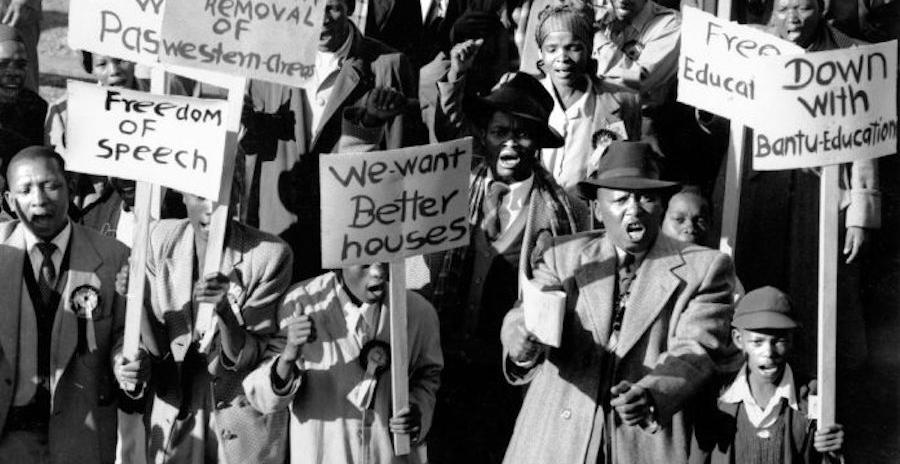
The meeting, which took place on 26 June, brought together vari ous organisations and people linked to the liberation movement, the African National Congress (ANC).
A lot has been penned about the lasting importance of the FC. This comprises its vision for an equitable social and economic system. Some have gone as far as describing the FC as having an influence on South Africa’s broadly celebrated consti tution.
In re-examining the 1955 gather ing, one cannot help but be filled with admiration and applaud the bravery and valour of the people who crafted the document at the height of apartheid.
They dared to tell the apartheid regime: “The People Shall Govern”
Every man and woman shall have the right to vote for and to stand as a candidate for all bodies which make laws.
All people shall be entitled to take part in the administration of the country.
The rights of the people shall be the same, regardless of race, colour or sex.
All bodies of minority rule, advi sory boards, councils and authori ties shall be replaced by democratic organs of self-government.
Over and above, the document directly objected to the right of the racist government of the time to continue governing when it said: “No government can justly claim authority unless it is based on the will of the people.”
It is important to note the empha sis of the FC’s mention of “The People” which conveyed the con cept of universal rights, with adult hood being of great importance
in a country where black adults of African stock were denigrated, addressed as boys and girls
This knock-back of human rights always entailed the breaking of human dignity, severe injuries and/or death. We were denied our humanity and quality as individuals and societies. The assertion to speak as “We, the people…” was about reclaiming human dignity and com plete personal identity. It sought to retrieve what had fallen apart as a result of apartheid tyranny.
The uncomfortable conversation that some, especially within the governing party, avoid is whether the degree to which changes in the country since the end of apartheid in 1994 have lived up to the ideals of the charter.
The Albatross
The very first clause of the char ter, The People Shall Govern , which I have touched on above, has become an albatross around the
All units outside and inside the country had to give meaning to this directive.
I am sketching this background painstakingly to highlight the cen trality of the Freedom Charter in our struggle against apartheid.
It was with utter disgust that I picked up news that the governing party and its allies had chosen to vote for the electoral act amend ment bill in its current form for signing into law by President Cyril Ramaphosa. What struck me as odd was the total blackout on the par liamentary channel of this critical debate on our future as a nation.
All this bears the hallmarks of thuggery. It gives credence to the saying, “there's no honour among thieves”. Society was deprived of the opportunity to see and hear arguments for and against the bill as that would have laid bare the culprits behind the frustration of the attainment of true freedom as envisaged in the Charter. Instead, we were shown a damp squib debate in the NCOP.
I guess the leading con artists behind this act of denying the nation access to this important debate got kudus for a job well done.
governing party's
neck…and will remain as such for some time.
It is prudent for me to put forth that I joined the ANC at a very young age. As a youngster, I grew up under the tutelage of Andrew Masondo who was the national commissar of Umkhonto we Sizwe. Masondo was the enforcer of the party's policies. Our political prow ess and sharpness as cadres of the movement was his core responsi bility.
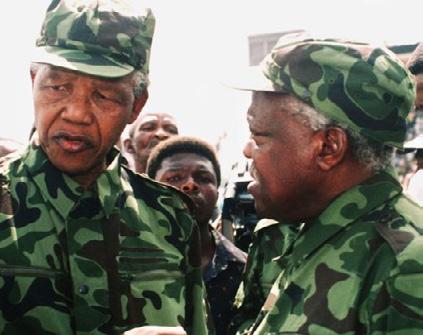
Without failure or a slip, he always emphasised the importance of politics to a man behind the gun because without it that man was a danger to the struggle at large. As a result, we all had to know the ten clauses of the Freedom Charter off
our hearts; but more importantly to understand their philosophical meaning and the bearing they were to have on the aspirant society we were sacrificing our youth for.
Every member of the ANC was proficient in the Charter as it dis tinguished it from other liberation struggle contenders for the hearts and minds of the people of South Africa. 1980 was declared the year of the Freedom Charter; the entire ANC program of action was geared and aligned to ensure that the doc ument found its way into every house across the length and breadth of the country. This was important because the document carried in it the message which captured a future South Africa.
These villains truly pulled the wool over our eyes; all this was done to hide a nefarious process designed to keep us beholden to corrupt political parties driven by greed and control of the country's resources for their gains.
One man one vote means just that as stipulated in Clause 1 of the Freedom Charter; Every man and woman shall have the right to stand for and choose a candidate of one's choice to all bodies which make laws; nowhere does it say the party on behalf of the people will make laws
Lucky Twala is a former MK combatant and Robben Island inmate.

11YOUR TAKE FRIDAY, OCTOBER 30-NOVEMBER12
YOUR TAKE LUCKY TWALA THE
The Freedom Charter was notable precisely for its insistence that economic and political rights were equally important. Photo
by Eli Weinberg / UWC Robben Island Mayibuye Archives
President Nelson Mandela With Fellow ANC Member General Andrew Masondo. Photo by Dr Peter Magubane
Editorial WE ARE SINKING TO THE BOTTOM OF A CESSPOOL

Our country’s econ omy is shrivelling, power blackouts have reached a record high, so much that they have become normal. The unemployment rate has hit an all-time high and crim inals have become even more brazen. The police are at sea without a captain. They blunder from one crime scene to the next at a scary speed.
The cost of living has risen to frustrating and dizzying heights. If you take a cursory glance at our cities and towns, you will notice they are fall ing apart. Sporadic outbreaks of violent service delivery pro tests and Afrophobic violence have become are now a dime a dozen.
It is not an apocalypse yet but we all can smell its putrid fumes.
The laundry list of prob lems that continue to grow are giving South Africans sleepless nights and crippling headaches.
Meanwhile, the country's number one citizen Cyril Ramaphosa looks at these problems as a hindrance as the ANC heads into its elec tive conference in December. He is concerned about getting a second term and how the party will fare in the national elections in 2024.
He has been so seized with staying as number one that he now suffers from indecision; something that has drawn the ire of critics from within the ANC and a sizeable por tion of the nation.
The president is so shellshocked that he has resorted to excessive consultations and always fails to ensure the proper implementation of decisions that are made. He is too scared to rock the boat that has made him the wealthy and ‘powerful’ man he has become.
That said, it would be disingenuous to load all of the country’s problems into Ramaphosa’s rickety wheel barrow. He is the product of a moribund and fractured, not to mention corruption-rid den organisation. The ANC

became a predator party a long time ago.
He sauntered into the top position as the challenges within the ANC were reaching a tipping point. The problems that have crippled the state and the ANC did not mate rialise overnight or when the indecisive Ramaphosa became the leading man.
A truckload of these chal lenges started during the ten ures of his predecessors who now would like us to believe they did better.
They must get off their one-legged moral high horse and admit that they contrib uted to the current economic crisis zipping through the country.
The problems that have put South Africa in knee-deep poo, are a direct result of the lack of proper management of the economy. There has always been mismanagement of the country’s resources mainly influenced by the wholesale looting of stateowned companies.
This pillaging has always been backed by big business and all kinds of shady char acters.
State-owned companies are broken.
You do not have to be a genius to notice that the country’s state of affairs is rather grim.
Former CEOs are being dragged to court for graft. We have a sitting president who still has to answer some tough integrity questions. There is a former president who is fac ing corruption charges which have dragged on for years.
The ANC political backyard is packed with current and former cabinet ministers who have been accused of corrup tion.
It is the same with former mayors and premiers.
All the corruptible individ uals, who are driven berserk by the scent of power and money, were sponsored and encouraged by gluttonous big corporates, shrewd lawyers and conniving accountants.
If the colossal demon of lust for thievery and unac countability is not annihi lated our country will sink deeper into poo. If the citizens stand by the roadside and clap for kleptomaniacs,things will get worse.
Do not count on the gov erning party to stop the rot. They have failed dismally for the past twenty-eight years. Like the rest of the continent’s liberation movements, they got into power and injected more life into the former col onisers’ system.
We emphasise, the ANC is severely broken there is no way in political hell that it can reverse the slide to the bottom of the socio-economic cesspool.
Their capacity to halt the reverse has been destroyed by its leaders’ concerns with out smarting growing opposition to the party presidency.
They wasted a lot of pre cious time trying to suppress any internal rebellion and preserving a predatory patron age network.
IT'S TIME TO TAKE RESPONSIBILITY AND STOP BLAMING OTHERS
Our society is rotten, figu ratively and literally. The stench of the rot is so strong and toxic that it has knocked out all functions of our national conscience.
It is so intolerable that no matter how long we can try to dip it in an ocean of premium perfumed state ments, the stench will not cease.
Put aside the repugnant moral standards that are lower than the belly of the snake, it is the dirt that irks the most. The level at which we have accepted filth in our neighbour hoods, towns, and even onetime prestigious cities like Johannesburg, even pigs would be ashamed.
Let me confess my sins afront. I am not much of a moralist or envi ronmentalist. If anything, I despise the holier-than-thou brigade that imposes its morality on others. I tend to treat moral standards like religion, as “a matter between man and his God.”
But for God's sake, can we at least have a level of embarrassment? A moment when we can feel and know disgrace, infamy, and a time when we can recognise indignity!
In our country churches have become crime syndicates, where money is laundered, people are traf ficked, drug moles are harvested, corridors of power have become criminal havens where every assort ment of crime is committed, and institutions of the state are used to cover all up.
Like a fish that rots from the head, our bureaucracy is devious from the highest office to the most junior official. Citizens buy "cold drinks" on the roads for the junior law enforcement officers, "fast track" every government service in every state institution, “oil” the tender processes, and even women abuse is on the menu. Some must sleep with someone to get a job.
The “lobby” of delegates at polit ical party conferences is much the same as the voting patterns of local councillors at municipal councils. It is done with stashes of cash or posi tions that will result in some wealth generation for both the individual and the party.
Cash in South African politics is king. Even the head of state is accused of sitting and sleeping on mountains of untraceable amounts of cash in his home!
All this is disgusting enough. But how on earth did we get to a point
TAKE
where, every last Saturday of the month it is mandatory, for all Rwandese to work on a nationwide community work from 08:00 to 11:00. Participation in Umuganda is required by law, and failure to participate can result in a fine.
In June this year, Kigali, the cap ital city of Rwanda, hosted more than 50 Commonwealth countries for the 2022 Commonwealth Heads of Government Meeting (CHOGM). Despite many attractive factors like easy connecting flights throughout the world and an easy visa process, Kigali’s desirability comes from its remarkable turnaround in becom ing the cleanest city in the African continent.
In fact, in 2018, UN Environ ment Programme Head Eric Solheim referred to Kigali as the “cleanest city on the planet,” both in terms of lack of street rubbish and green initiatives.
where it is now normal to live in waste, literally? Every corner in most townships and towns is a dumping site. Streets are lined with rubbish.
With some delight, I recently encountered a neighbour who was mobilising resources, mostly human, to start a vegetable garden on an open piece of land that was now being used as a dumping site.
She reminded me of a man I grew up watching as he cleaned Soweto. With every bone in my body, I believe that Japhta Lekgetho of the National Environmental Awareness Campaign (NEAC), which he estab lished in Soweto in 1977, was ahead of his time.
We grew up taking care of yards in Soweto, every house had its green lawns and beautiful flowers as its pride and joy. Despite living in dusty streets, every open field was that township's "park" designed and maintained by the local boys. All this was inspired by ntate Lekgetho.
What he did then, is what has made Rwanda the cleanest country in the African continent. Unlike ntate Lekgetho, a single crusader, in Rwanda, the government enforces national community work which focuses on environmental clean-up.
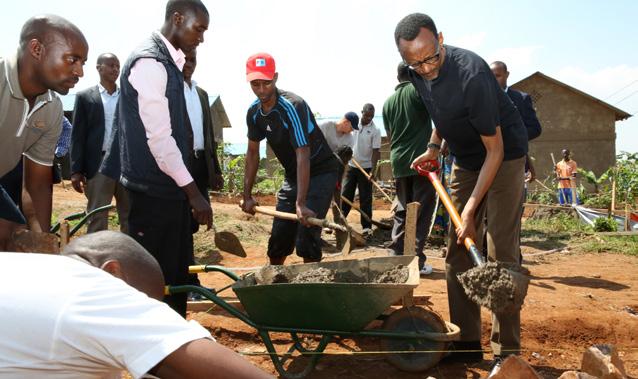
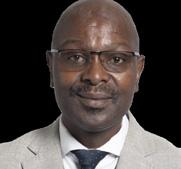
They have Umuganda, which is pretty much the same as our Man dela Day except this is much more serious and not a celebrity photo opportunity for an hour like we do here.
It is a national holiday in Rwanda
When we celebrated freedom in 1994, Rwanda experienced the dark est chapter in its history. As many as 800,000 people, mostly of the Tutsi minority, were butchered in what was to be known as the Rwandan genocide.
The genocide spread throughout the country with shocking speed and brutality. Ordinary citizens were incited by local officials and the Hutu Power government to take up arms against their neighbours. By the time the Tutsi-led Rwandese Patriotic Front gained control of the country through a military offensive, hundreds of thousands of Rwandans were dead and 2 million refugees (mainly Hutus) fled Rwanda, exac erbating what had already become a full-blown humanitarian crisis.
But the human spirit prevailed in this traumatised nation of about 13 million people.
More than anything else, the Rwandese took pride in their dignity and their cleanliness.
Like us, Rwanda had its share of a corrupt and violent past, but in their case, to make matters worse, that country is poorer and is surrounded by violent crime in nearby countries like Kenya and Tanzania.
However, despite all that, Rwan da’s crime is nothing close to the hell we live in. The streets of Kigali are safe. In Rwanda, rules and laws are largely enforced and of course, it is remarkably clean, with well-paved main streets and a sheen of order.
I am green with envy.
12 OPINION & ANALYSISFRIDAY, OCTOBER 30-NOVEMBER12 MY
MBANGWA XABA
Cyril Ramaphosa.
Photo by AFP
LUNATICS
MURDER
To every loving parent, there is no image so stunning as a smiling, bright-eyed, and high-spirited child. There is no music so enchanting and sweet as the clear and ringing laughter of a child.
Goodness gracious me, there is no greater joy than that of being a parent. It has its highs that consist of baby cuddles, belly laughs and mem ories you know you will treasure for eternity. There are also lows, those instances when you say to yourself: “I have no freaking clue or sense of what I am doing.”
There are parents who would tell you about the wholesome joy of simply observing the products of loins being kids and re-living all those first moments when they dis covered ways to do things on their own; without any assistance.
Mothers and fathers know the joy of being responsible to help shape a young mind and allowing it to blos som is nothing short of miraculous.
Nothing is as spellbinding and bewildering as seeing them smile, and giggle; and the uplifting pride in new accomplishments.
That is true parental joie de vivre…
There are times you do the best you can by going out of your way to hide from your children that you are just winging it. You do that because you know your kids are always look ing up to you for wisdom.
Being a parent is knowing pure joy, even if you experience the gru elling hardships of life. As a father, I have gained knowledge of rising to any occasion and have often found myself elevated to new heights while extending myself beyond any and all limitations I once imposed upon myself. With hardly ever a dull moment, I have gone through more adventures parenting my children than ever conceivable.
Fatherhood has always given me a good excuse of staying forever young, kicking off my average-sized shoes and letting down whatever is left of my hair while enjoying the love of my children, beyond meas ure. Being a parent is my life, my bliss, my obsession, and my highest accomplishment.
For a commonly recognised com bination of emotions, the complica tion of parenthood is exceptionally difficult to put into words. What I can declare is, it is an amalgamation of love, fear, hope, and endeavour ing to do the best you can best without any idea if what you are doing will lead to satisfying results.
The worst fear that has us scream ing at the top of our voices and running around in never-ending circles is that we live in a country that is peopled by monsters who abuse, kill and mutilate children daily. Ours is a country loaded with demonic warlords who derive pleas ure from maiming children. Parents are crippled by the terror wrought on children.
These prehistoric bloodthirsty demons are aided and abetted by a failing state that has no qualms about keeping our towns and cities in the dark.
I repeat, the psychopaths who have declared war on our children are aided by an inept government which has declared its own war on the nation by plunging people into poverty and inequality. Their public verbal masturbation has done noth ing to save young people who are drowning in all kinds of drugs.
Unemployed and unemployable citizens live in hunger…youngsters are narcotised and at risk of being used as pawns by evil and twisted scumbags.
Children are subjected to violence of unmatched levels as if they live in a war zone. The rape, murder and mutilation of children are written about constantly. Each piece that is written creates a national rage. How ever, the rage has no effect because the scourge gets worse with each passing day.

When the culprits get appre hended, they miraculously get bail which enables them to go on an intense rape and killing spree.
What makes my blood boil is the languid reaction from what passes for police and judicial authorities.

I am sick to the core of my soul with incoherent ministers flooding our television screens with crocodile

tears. These dimwits who reside in a parallel universe go around spew ing pie crumbs promises for media attention. I find it very nauseating. As for the NPA, the less said the bet ter. That thing is a toothless political tool.
Sometimes I wonder if the NPA is aware that our country is awash with murderous lunatics who are overwhelmed by regular bouts of uncontrollable emotional outbursts, that always drives them to retaliate, destroy and demolish by killing. This republic is overflowing with these lunatics; bloodcurdling mur derers who roam freely without any respect for life. I'm talking about the cold, shameless lunatic, who may never have appeared as mad as a hatter up until the day he raped and hacked a child to death; sold the body parts or buried them in a place where the devil only knows.
As we navigate through the stormy sea called life, chances are, no less than three children would have had theirs sadistically cut short and close to twenty will be fighting to breathe one more day as they recuperate from grievous bodily harm caused by an evil slimeball that passes for an adult human being.
As a country, we are in a race against time to protect the lives and well-being of our children while the authorities engage in stom ach-churning verbal gymnastics. The tragedy is magnified when the home, a space where children should be safe, has also become insecure.
In South Africa, we are at war with ourselves. It breaks my fragile heart that the political wolves who call themselves leaders are racing to get to the meat to even notice. Let us not put even an iota of trust in pol iticians because if we do, by the time

we come to, we will have caused so much damage. The ineptitude of those tasked with governing the country is butchering any potential that South Africa ever had.
The daily butchering of children is fast driving us to a point where the country will be so torn that there will be nothing left to salvage from all the fractured souls.
So, where to from here? I can write about all the macabre inci dents, and even cite reports but that does not bring a solution.
The logical step is to kick the heartless warlords who call them selves leaders of society. I beseech you to X them out of the corridors of power in 2024.
You may be surprised that by vot ing wisely we might find ourselves on the right path to bringing joy back to the lives of South Africa's children.
HAVE BEEN SET FREE TO
SOUTH AFRICA’S FUTURE 13OPINION & ANALYSIS FRIDAY, OCTOBER 30-NOVEMBER12
Children are scared, sad, lonely and in danger.
Photo by Getty Images/iStockphoto
THE BIRTH OF A NEW
By Robert Trent Vinson
In the early 20th century, as the global colour line hardened, transnational African and dias poric black Christian communi ties combined close readings of the Bible and the writing of their own sacred texts to create autonomous religious communities and prophesied a new Zion.
They did so in both movements mostly framed in narrow political terms, and in supposedly apolitical religious communities whose very existence was nonetheless inherently political.
For example, the Universal Negro Improvement Association (UNIA) was the largest and most widespread black movement in world history. At its height in the early 1920s, the UNIA had an estimated two million mem bers and sympathisers, and more than 1000 chapters in 43 countries and territories, including Africa.
Co-founded in Jamaica in 1914 by Amy Ashwood and her future hus band, Marcus Garvey, the New Yorkbased UNIA’s meteoric rise resulted in an agenda that included shipping lines, corporations, and universities; a Liberian colonisation scheme; a resolute desire to reconstitute Afri can independence; and a fierce racial pride, ideas and programs transmitted largely through the global circulation of the UNIA’s newspaper, the Negro World
But the often overlooked, but deeply religious character of the UNIA was reflected in Marcus Garvey’s view that the UNIA was a civil religion, a “great, all-comprehensive, racial missionary movement, a holy cause to which every Negro should give undivided allegiance.”
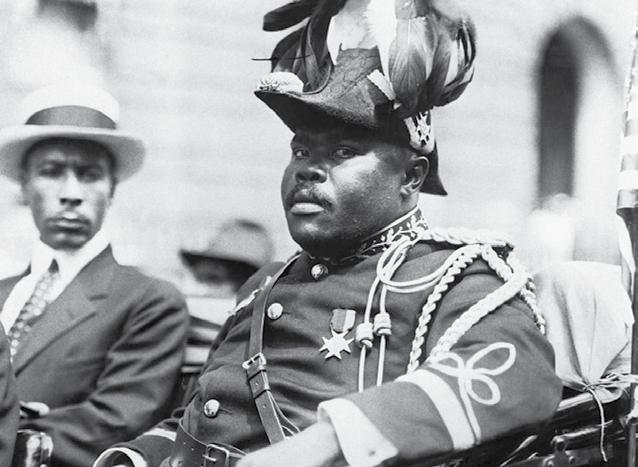
Garvey claimed to be a new Moses,
ordained to lead the global black race to “African redemption,” in the form of African independence. He also later claimed clear parallels between him self and Jesus Christ: both were perse cuted leaders of a revolutionary gospel that created a mass movement of oppressed peoples that would thrive long after their respective lifetimes. Garveyites across the globe regarded themselves as the modern-day Israel ites in a covenantal relationship with God.
Garveyites also wrote their own sacred texts. Two Caribbean-born figures that migrated to North Amer ica illustrate this point. In the early 1920s, George McGuire, from Anti gua, founded the African Orthodox Church (AOC) in the US. McGuire became the UNIA chaplain-general and the author of two UNIA sacred texts—the Universal Negro Catechism, which claimed that God had ordained the UNIA to “redeem” Africa, and the Universal Negro Ritual, which con tained nearly 150 hymns, prayers, and songs for UNIA events.
At the same time, Richard Athlyi Rogers, from Anguilla, founded the House of Athlyi (HOA), headquar tered in Newark, New Jersey. Rogers also supplemented the Bible with his own sacred texts, such as The Holy Piby: The Black Man’s Bible. Eventually, this became a foundational text of Jamaica’s Rastafarian movement, the Holy Piby. The text notably interpreted the Battle of Adwa, in which Ethiopia defeated Italy in 1896, as a sign of impending Black liberation.

Both the AOC and HOA established churches in South Africa, reminding us that these Garveyites were part of ongoing transnational flows of peo ple, ideas, and institutions of global Christianity. By 1908, black and white Zionists—so named because they had roots in a church founded
in Zion City, Illinois, USA, had come to southern Africa, but soon their mission foundered after initial inter racial fellowships soon gave way to white-over-black racial hierarchies in South Africa.
Yet, from these ashes rose the remarkable Isaiah Shembe, the foun dational prophet of South African Zionism. Born Mdliwamafa Shembe in 1867, Isaiah Shembe founded the Nazaretha Church in 1910. He later cast his mother, Sitheya, as a latter-day virgin Mary that gave birth to him, a messianic figure. Just as Jesus received the Holy Spirit and his healing powers during his baptism, Shembe claimed that he did too, and he soon adopted the prophetic name, Isaiah.
From the donations of his increas ing followers, Shembe bought large tracts of land to enable Nazaretha communities to maintain commu nity cohesion and religious, cultural and socio-economic autonomy, min imising the familial and community disintegration caused by large-scale
African labour migration to colonial labour markets.
In the context of state segrega tionist policy, land dispossession, and coercive taxes being deployed to gen erate massive African labour migra tion, African land acquisition and autonomous community and labour organisation were inherently political.
The Nazaretha drew their name from the Nazarites described in the Old Testament book of Numbers, who consecrated their lives in total covenantal devotion to God as part of the divinely ordained mandate to regenerate fallen humanity and to create an earthly kingdom of Zion. For them, the Bible was not just a completed record of a bygone biblical past chronicling the triumphs and travails of distant and foreign people, but an open book that prophesied future liberation.
Like how the early Christian apos tles spoke of and wrote down, stories of Jesus in the New Testament Gospels and the Book of Acts, the Nazaretha
recorded, transcribed, collected, and archived stories (izindaba) of Shembe’s miraculous works of faith healing. Their theological canon of gospel-like texts, hymns and other archived izind aba place Moses, Jesus and Shembe as an intertwined triumvirate, with Jesus advancing Moses’ edicts, and Shembe advancing Jesus’ ministry in a “post-Christian” contemporary period.
Like the Garveyites, the Nazare tha read and wrote their way into prophecies of deliverance from white supremacy, envisioning themselves as divinely ordained leaders who would create a more just, humane, and moral world, a new Zion. – africasacountry. com
Robert Trent Vinson is a pro fessor, director and chair of the Carter G. Woodson Institute for African American & African Studies at the University of Vir ginia and a research affiliate at Stellenbosch University.
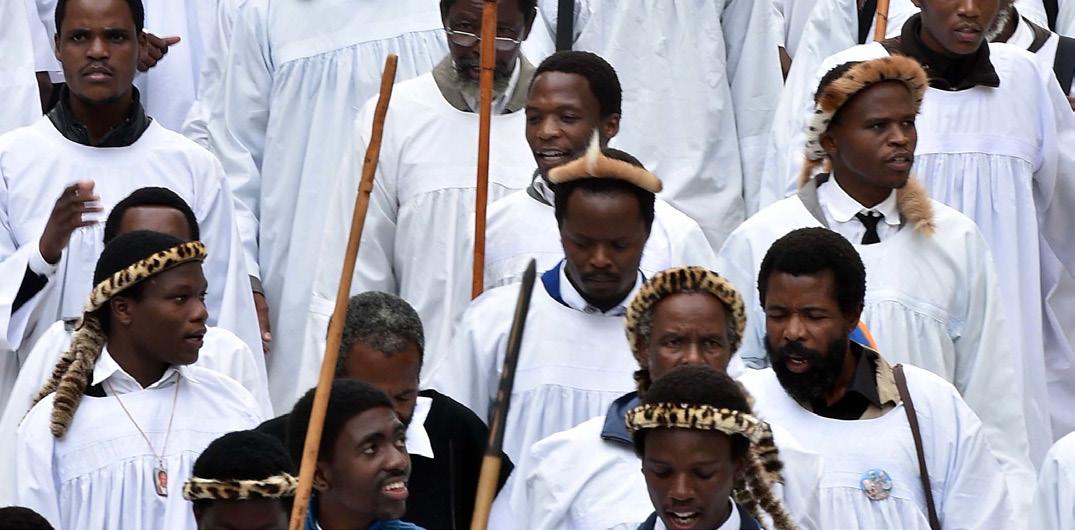
14 FEATUREFRIDAY, OCTOBER 30-NOVEMBER12
ZION
Marcus Garvey
claimed to be a new Moses, ordained to lead the global black race to “African redemption,” in the form of African independence.
Photo by history.com
Members of the Nazareth Baptist Church, iBandla lika Shembe. Photo by GCIS
By Edward Tsumele
There is no doubt that the Cape Town International Festival (CTIJF), even as a debate raged over the years as to whether it must continue to market itself as a jazz festival, when in fact is a broad music festival, that it is an important event on the South African entertain ment calendar.
This event has over the years drawn many music lovers to this coastal city. Some have even scheduled their holidays to coincide with this major event. And yes, those that attended this festival when it was known as the North Sea Jazz Festival, taking its name from its bigger cousin in The Netherlands, would have noticed that it has changed from being a festival that featured mainly jazz, to a festival that is inclusive of other genres, such as pop music and even kwaito over the years.
I attended both the North Sea Jazz Festival and the Cape Town Jazz Festi val a couple of times, and I have per sonally witnessed its metamorphosis, becoming more inclusive and acces sible to a broad spectrum of musical tastes. Whether that is a good thing or not, depends on each individual's mindset. For me, it does not matter whether Abdullah Ibrahim has come down the stage to give way to TKZee for example.
If I do not like that stage, I simply move to the next stage where my cup of tea is served. That is the beauty that comes with the ability to choose who you want to watch in performance when there are several stages catering for different music tastes at a festival. But am sure jazz purists will not agree with me on this point. Let us agree to disagree this time around. It is Okay.
However, the good news is this: This popular music festival is back after the disruptions of Covid-19 in 2020. This should come as a relief to many of us, especially when the news
first broke out that Abdullah Ibrahim had withdrawn from the line-up in 2022, a news item that made many of us start taking the outbreak of Covid-19 at that early stage seriously.
Thereafter the entire festival a week later was scrapped.
The reality of the danger we faced from Covid-19 became even more real at that stage.
With this confirmation by the organisers this week, fans of the festi val) can finally breathe a sigh of relief.
Africa’s Grandest Gathering and South Africa’s original and much-loved jazz fest – the Cape Town International Jazz Festival – will take place at the Cape Town International Convention Centre (CTICC), on Friday 17th March and Saturday 18th March 2023.
Back to entertain after a three-year
break thanks to successive lockdowns because of COVID-19, the Cape Town International Jazz Festival (CTIJF) will continue its 21st-anniversary celebra tions that were necessarily postponed in 2020, with a line-up, look and feel and several surprises, that celebrate its roots but with a nod to the future.
The exciting announcement was conveyed by Judith Sephuma, South Africa's Queen of Afro-jazz who is thrilled to be returning to Cape Town to entertain festival goers.
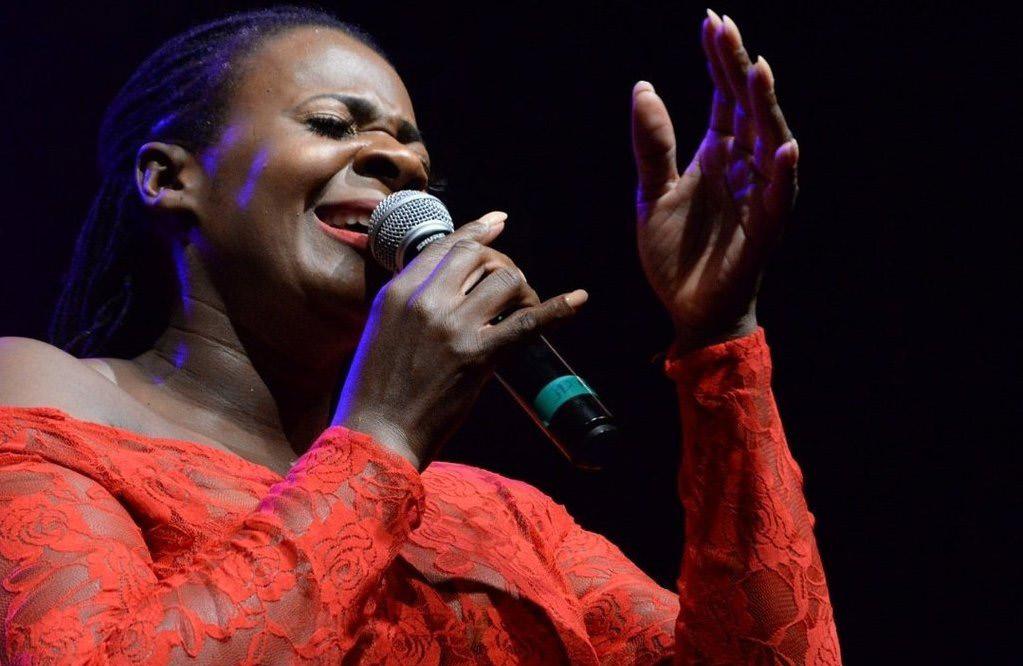
In Judith’s words: “The Cape Town International Jazz Festival holds a special place in my heart. I performed at the very first one and am happy to be at this, the 21st event, to share my music with Festinos again. There has been a definite gap in the music festival calendar without the CT Jazz
Fest these past couple of years, so I am delighted it is back, and it promises to be amazing – as usual. I hope to see you all there.”
“But it’s not all business as usual. The 2023 CTIJF, known for its scin tillating and eclectic mix of jazz and jazz-related music, will take account of the fans’ desires to spend more time enjoying and appreciating the artists that are on offer and the music they love, as well as upping the ‘festival’ feeling with an expanded offering of ‘experiences’ – more details to come.
In 2023, there will be three stages hosting more than 21 music perfor mances. The stages for 2023, are: Rosies, which jazz purists will appreciate for the exceptional audio quality of the acoustics complement ing the performers’ sound.
Kippies retains its position in the main Hall on the Ground floor and will be the place to groove to more familiar names, whilst the open-air Downtown stage (formerly Man nenberg) will be the place to discover new beats, names, and jams.
Another change the festival announced, is that highly respected music impresario, Billy Domingo, the Festival Director for many years, has retired from espAfrika, the organisers of CTIJF. In tribute, the programming of the 2023 event will pay homage to Billy’s love of promoting African artists, and the CTIJF’s reputation as a place to discover incredible talent.
Newly appointed CEO of espAfrika, Amit Makan, had this to say about the eagerly anticipated return of the CTIJF: “The CTIJF has grown to embody the diverse talent and star power of South African artists, whilst also providing a platform for residents to experience international music performers they would not usually be able to see.
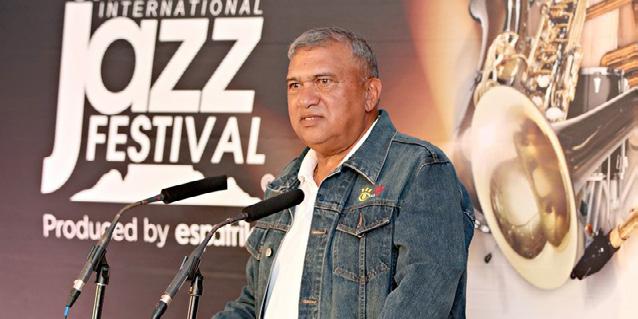
"Growing this brand and taking it forward into the next phase of its success is a challenge, one I relish, even with these interesting times we are living in,” said the organisers in a media statement.

“It is music artists, like the sub lime Judith Sephuma who has today lent her considerable support to this next event, whom I wish to thank, as they make what we do a pleasure and worthwhile. Without you, there would be no festival for the fans to enjoy, but together, we are a powerful match made for listening and experi ential bliss. Thank you, Judith, and to every artist who has ever performed here and to those yet to come.”
In keeping with the Afri-Futurism theme for the 21st anniversary and looking to the digital future, the CTIJF has partnered with Ticketmaster who will provide the ticketing solution, and the festival will also launch a brand-new audience engagement plat form (AEP) and Festino experience app. – citylifearts.co.za
15FEATURE FRIDAY, OCTOBER 30-NOVEMBER12 CAPE TOWN INTERNATIONAL JAZZ FESTIVAL IS BACK “The Cape Town International Jazz Festival holds a special place in my heart. I performed at the very first one and am happy to be at this, the 21st event, to share my music with Festinos again,” says Judith Sephuma. Photo by judithsephumamusic.com
GROSS MISCONDUCT IS NOT AUTOMATICALLY DISMISSABLE
By Ivan Israelstam
Labour legislation in South Africa is heavily weighted in favour of employees. The heavy protection of employees against being dismissed makes it very difficult for employers to run efficient workplaces. This in turn compromises the ability of businesses to grow and employ more employees.
One example of this problematic legislation is the fact that some arbi ters give too much weight to mitigat ing circumstances. For example, while it is acceptable to use an employee's long service as a mitigating circum stance in certain situations, it makes no sense to view the length of service as an immovable barrier against dis missal.
For instance, should a penalty of dismissal be imposed in a case where the employee has been grossly derelict in his duties, the employer normally intends for the employee to stay fired. This is because:
● No enterprise can run effectively and harmoniously with employees who break the rules, destroy trust, or fail to do their duty.
● The employer needs to replace the errant employee and will therefore not have a post available for a dis missed employee who is reinstated.
● The employer wants all employees to know that if they cross the line they will be out of a job.
● The reinstatement of a dismissed employee, therefore, undermines the harmony and effectiveness of the workplace and the authority of man agement.
The employer, therefore, has a very strong need to know that its dismissal decision will not be interfered with. However, the Labour Relations Act (LRA) dilutes the employer's right to dismiss by:
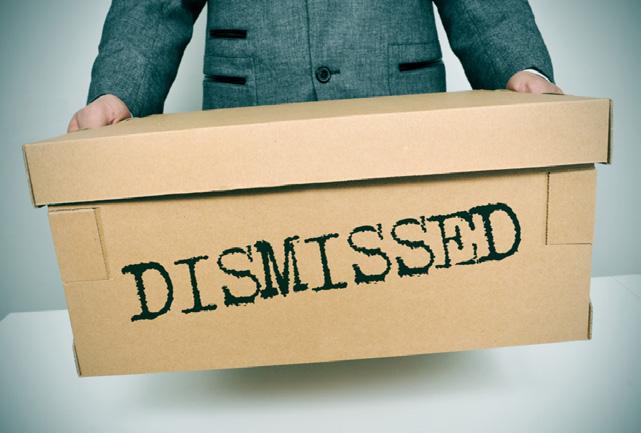
● Laying down numerous and strin gent criteria for deciding whether a dismissal decision should stand or not.
● Giving arbitrators and judges the right to overturn dismissal decisions.
It is the above provisions that have plagued many employers over the past years and have resulted in many thousands of employees being rein stated.
Some years ago, Rustenburg Plati num Mines dismissed Mr Sidumo for failing in his duty as a mine security officer. Sidumo failed to follow the required loss prevention procedures to be utilised for searching employees employed in a high-security area.
On the day in question, the
employee failed to search all but one of the people who exited the com pany's precious metal store. Sidumo, through his trade union, disputed the dismissal at the CCMA.
The arbitrator accepted that Sidumo had been guilty as charged but decided that the dismissal deci sion was too harsh.
As Sidumo had 15 years of service and had ‘not been trained’ in the required duties the arbitrator ordered he be reinstated.
The employer attempted to get this award overturned at Labour Court on
the grounds that, where an employee is indeed guilty of a serious offence, the CCMA should not have the right to interfere with the sanction imposed by the employer.
Both the Labour Court and Labour Appeal Court dismissed this argument of the employer. Rustenburg Platinum then approached the Supreme Court of Appeal where it was decided that arbitrators should approach the sanc tion of the employer with some defer ence and should only overturn it if it is way out of kilter with what would be fair. In other words, the Court said
that, even if the arbitrator believed that a sanction other than dismissal would be fairer if the employer's deci sion was still within the bounds of fairness, the arbitrator should not interfere with the employer's decision.
This was because it was the employ er's function to impose a sanction and because the employer has the prerogative to decide, within reason, how strong its sanctions should be.
This decision was hailed by employ ers because it supported the need for employers to be able to protect their interests from the threat of errant employees and it represented an important swing in the pendulum towards a balance between the rights of employees to fair labour practice and the right of employers to run their businesses effectively.
However, the trade union move ment saw the decision as a threat to the tight hold they had achieved during the past years over labour leg islation. As a result, the matter was taken to the Constitutional Court.
In the case of Sidumo vs Rusten burg Platinum Mines Ltd and others (October 2007, Skills Portal Newslet ter) the Constitutional Court over turned the decision of the Supreme Court of Appeal.
The Court said that arbitrators are not required to defer to employers’ decisions and must instead take all relevant circumstances into account in deciding if the employer’s sanction decision was fair.
In effect, the Constitutional Court has decided that the law protecting the jobs of employees must remain paramount.
In their disappointment employers should not lose heart and be deterred from dismissing employees who deserve it.
Instead, they must ensure that, before they discipline and dismiss employees, they consult a labour law expert to ensure that employees who deserve to be dismissed remain fired.
– labourlawadvice.co.za

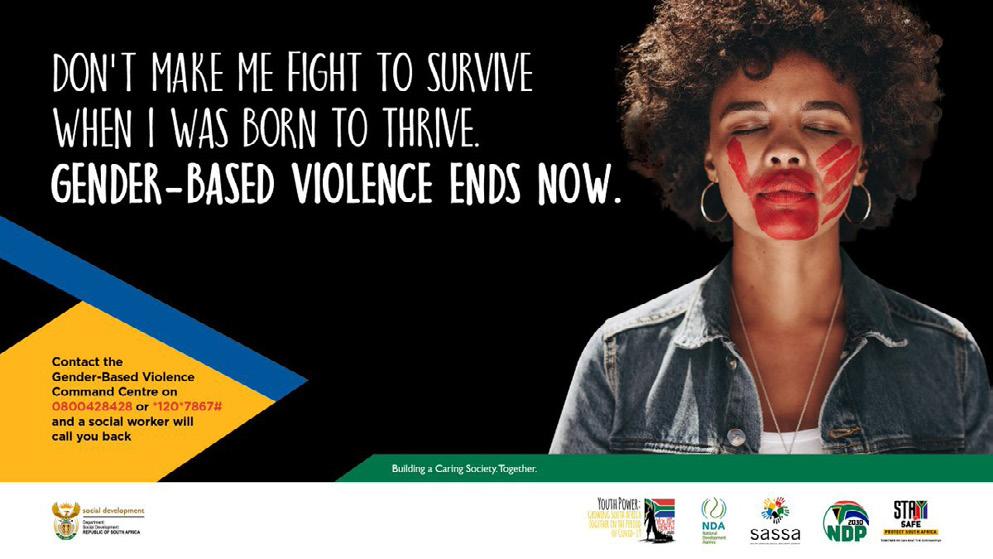
16 LABOUR MATTERSFRIDAY, OCTOBER 30-NOVEMBER12
A SMOOTH BUT TOUGH BEAUTY THIS JEEP GRAND CHEROKEE L
The blokes from FCA have thrown the cat among the pigeons. When you mention the name Jeep the first picture is of a rugged military application vehicle with an American military star on the bonnet. The last thing to imagine is a luxury, sleek family mover. In South African markets, we have never enjoyed those huge petrol guzzlers that can't even fit in your standard garage.
Toyota has always been the king of people's mover in South Africa; however, several manufacturers have come out with guns blazing taking no prisoners for the top spot. Currently, luxury family movers have been dom inated by the Germans. Koreans have brought value so have the Chinese. The Japanese model borders on relia bility and dependency.
The Swiss family movers are pio neers of technology adorned with beauty and oozing with every kind of gizmo to keep your precious cargo safe, The Brits are known for their no-nonsense quality standards. 202223 looks like a bumper year for new arrivals forms all motoring's stables.
As the SUV trend is growing glob ally, Fiat Chrysler automobiles "FCA" has also been bitten by the family mover's bug. This is the very first attempt of the 3rd row variant by Jeep on our shores. The much-anticipated Jeep Grand Cherokee L has finally made its way onto our shores. We have managed to get one for a short test drive. As we all know Americans are generous with sizes. I was expect ing the Cherokee Grand L to be a behemoth of a vehicle. Possibly bigger than its German rivals; only to meet a well-thought-of, well-sized family movers suitable for South African shopping malls parking spaces and our standard garage.
Approaching from the front I could but notice some of the WK2 Cherokee sort of DNA on the grille. There is an almost similarity with the previous generation of Cherokee. The lights are slimmer and the intake is huge. The test model was white with a bit of
black and the chrome suited it so well.
Frankly having seen most colours of this model, this will be my choice of colour. There are clean flowing lines on the side. The doors are adorned with some more chrome to make that American statement; with the grand Cherokee also written in silver on the front doors. Proceeding to the back of the vehicle you are greeted by Slim LED rear lights that emit a red stripe of light that goes almost to the side of the vehicle if you depress the brake pedal.
The lights are incorporated onto the boot door. I must admit that this car looks flawless from the outside. It is a real head-turner. Coming inside you immediately recognise that Amer ican luxury feeling with a bit of Italian taste here and there.
The first thing I noticed was the absence of a gear lever which is a trend in most stables. As per all luxury brands, the seats are motorised. The cockpit is fully digital; you might mistake it for a Lear jet cockpit.

The test model had a generously tilted 10-inch infotainment, next to the start button that is also facing
slightly up. I must admit I am still used to the old WK2 gear lever. Knob gear selection will need a bit of time to get used to. The infotainment is easy
to use and practical. I was expecting that loud jeep noise when I heat the start button. The cabin is surprisingly quiet. You need to open the windows
to listen to that motor purring like a contented feline. The steering feels quite responsive for such a giant. The brake pedal is reassuringly firm and always keeps this beast in check. The suspension is smooth and the 3.6L litre engine has no lack of oomph. The Americans have always been known to be gluttons and guzzlers when it comes to fuel, however, on the brief trip I couldn't fault this newcomer much.
I was told there is only one pet rol version for now in South Africa which is a 3.6 mated to an 8-speed ZF gearbox. The McIntosh 19-speaker system ensures that you are well-re laxed on those long trips. I am around 1.8meters tall and as such, I do test all seating positions. Honestly, if I fit on any seat, almost everybody can fit. The first two rows are spacious and comfortable. The third row can accommodate an average adult well, but it is a bit smaller compared to the likes of X7 and GLS.
It is a bit difficult to compare a Jeep with anything as it is in a class of its own.

Cherokee L features List price: R1.3million for an entry Limited - R1.4million for the test model overland Engine: V6 3.2L220 Power: 210kw Torque: 344Nm Gearbox: F 8-speed gearbox Fuel-type; Petrol unleaded Consumption: 10.6L/100L Capacity: 87 Fuel range: 820km per tank Tyre Size: 255 50 R20 It costs about R5 500 per tyre or R22 000 for a set of 4

Considering that the X7 and the GlS petrol cost around R2.7 million, Overland makes good sense. Although Jeep's long-term use reliability is not its strong point.
I hope the new kid on the block will make a case for Westerners. A 3-year 100 000km and an instalment of just around R50 000 per month might seem appealing to some exec utives.


17MOTORING FRIDAY, OCTOBER 30-NOVEMBER12
RIDE ON DUMI XABA
GREED AND EGOTISM BLOW THE WHISTLE ON SCHOOL SPORT
By Amanda Ngudle
Sportswere once the mainstay of the school scene in townships and rural areas.
Today, the field has not only shrunk but has been abandoned. Where there is attention, the bene factor comes riding on a horse called greed. There was a time when schools had a great variety of competitive options for pupils. While many students got involved in sports for sheer love, there were significant benefits from these extracurricular activities too.
Sports used to get even the most hardened school loafers to attend school.
The tragedy of it all is that South Africa’s history of apartheid has left its indelible footprints in school not only in academic excellence but also in the sports arena.
Schools in formerly white suburbs boast excellent sports facilities while township schools have to do with ramshackle facilities if there are any. South Africa would be lucky to churn out world-beating black sports heroes at the rate things are going.
What is even sad is, that youngsters who are not involved in extracurricu lar activities end up picking vices that increase crime levels.
What happened?
“The same can be said for choral music, beauty pageants, anti-litter ing campaigns and entertainment in the schools,” said Zanele Mbatha-Ka songo, a principal at a Johannesburg school.
“While we used to send brilliant pupils to represent the school on the
circuit, then the district and to the province before, finally, national lev els, we have been left with nothing. We have a proper talent drain,” she lamented.
“Children are only taught pre scribed curriculum before the bell rings, and everyone schleps off home.”
Sports talent scouts like Jazzman Mahlakgane of The Professionals, a sports professional agent that has signed several players with overseas teams, say they have noticed with regret the dwindling numbers of
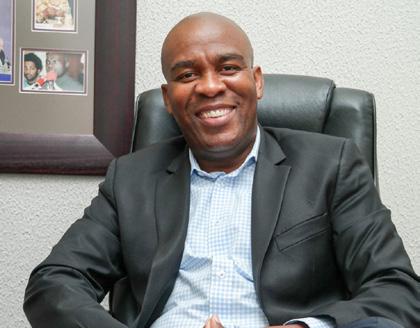
young people recruited from schools. He calls it a tragedy. "We have noticed this tragic decline over the past 10 years or so. Upon enquiry, we were told by the schools that there were no dedicated school sports masters.”
And the reason for the decline in the number of sports masters stems from the fact that they don’t get paid for offering extra-curricular pro grammes.
Many used to blame The South African Democratic Teachers Union which was said to have bestowed

teachers the right to decline to offer extra-curricular activities in schools citing an already big responsibility in teaching. But Nomsa Cele, the spokes person for the organisation denies these allegations.
“Even now as I’m talking to you, I just came out of our National Gen eral Council meeting where we took serious resolve to take back our role in sports development,” she said.
"We have observed with regret that sponsors have overtaken the role whereas they came as just sponsors. They have commercialised our school activities and labelled them with their organisations. Choral Music has become a property of Old Mutual.
“Soccer in schools has become known as the Kay Motsepe Schools Cup: Football (KMSC Football) spon sored by the Motsepe Foundation and Sanlam.
"It was launched in 2004 at pub lic, private and independent high schools around South Africa. It is the biggest school football tournament in the country, with more than 5 000 schools participating annually.
“Each provincial champion gets an amount of R100 000. The competition carries a prize of R1 000 000 for the winning team, as well as R600 000, R500 000 and R400 000 for the sec ond, third and fourth schools respec tively. The prize money is used for school-related development projects, such as the improvement of school infrastructure, office blocks, libraries, classrooms, ablution facilities and sporting facilities.”
At the root of the problem is the capitalisation of sports. While educa tors like Mbatha-Kasongo and Nene, want full control of sports and other
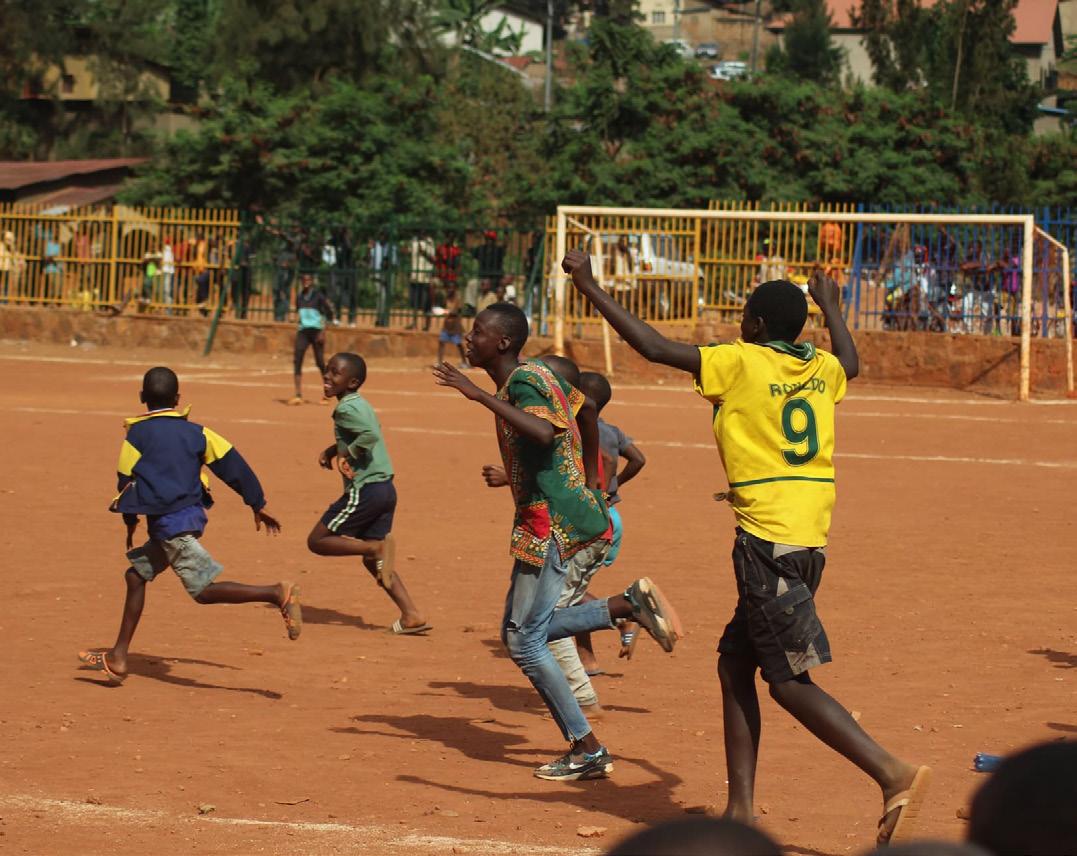
extra-curricular activities at school so that every learner is given a fair chance in faring these different non-collegiate activities, sponsors run with their own programmes and leave those who don't make the immediate cut to their own devices.
And for most, their pastime has turned into binging on alcohol, underage sexual activities as well as the most dreaded drug problem.
Mahlakgane agrees that schools should be at the centre of control in these activities saying there are life orientated and life orientation is one of the major subjects, teachers are more equipped in dealing with pupils and how to place different players in different positions.
"Schools also feed national teams, so the conflict between corporate and teachers is an important one because alienating schools and taking the cream of the crop and paying them back in infrastructure benefits only a few," said Mbatha-Kasongo.
“We want to see every child find a place for him or herself in the world of talent interests.
"And right now, a child who does not score goals is left behind, when he could have been an assistant coach or a goalkeeper. It’s bad for the morale of the kids.”
Mahlakgane says it is the respon sibility of everyone to bring back the glory in school tournaments and cho ral competitions.
"All stakeholders, parents, teachers, community members, basic educa tion ministry, SGBs and the student themselves need to take the initiative to bring back the fun in learning. It's for everyone's benefit and mental health."
18 FEATUREFRIDAY, OCTOBER 30-NOVEMBER12
Jazzman Mahlakgane calls it a tragedy.
FORMER TAXI BOSS IS DRIVEN BY THE LOVE OF FOOTBALL
 By Gontse Hlophe
By Gontse Hlophe
Spotted by his bald head and good fashion sense, Morgan Mmamila embarked on his journey from starting as a taxi owner, to a career as a police officer and is now at the managerial helm of Chippa United.
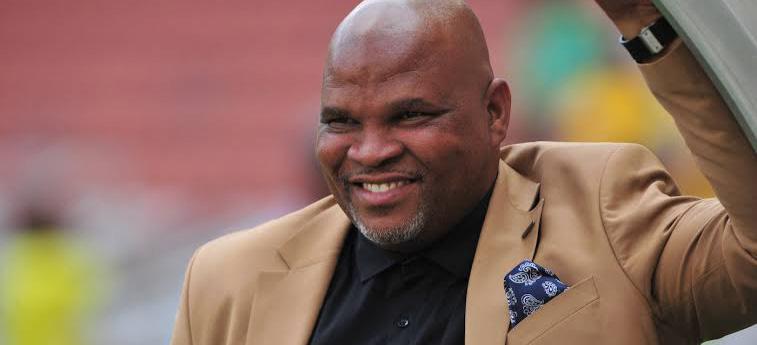
The 47-year-old Mmamila has been in the world of football for several years, being able to work with a few of the DStv Premiership teams like Baroka, Royal Eagles and Chippa United.
Mmamila has worn many hats in past years. He was the CEO of the Chilli boys until 2019, he worked as the CEO at KwaZulu-Natal GladAfrica Championship side Royal Eagles. He first worked with Chippa Mpengesi in the 2018/19 season after he quit his position as CEO of Baroka FC.
Moreover, Mmamila was the first CEO of BCM Stars, formerly Peace Makers FC, before Mpengesi’s son, Sandiso Mpengesi, bought the club and now making his return to the club for the second time.
“When I was a police officer in Johannesburg, I bought the status of a Castle League club Matlope United. I was a taxi driver, too, and my small salary as a police officer went to this team. My grandmother was looking after the team and taxi business. She was also supportive of my ventures," said Mmamila.
Interestingly, for the love of the game, he has vowed that he will function in any position the chair man requires of him, as long as it is football. Since he arrived at Chippa United, Mmamila has seen a meteoric rise after guiding his side to a 2-1 win over Kaizer Chiefs in the DStv Premiership clash at the Moses Mab hida Stadium.
Aside from defeating Kaizer Chiefs, Chippa United also boasts a 2-1 vic tory against AmaZulu. The Chilli Boys also defeated Marumo Gallants 1-0 in the same season making his start of the season one of a kind.
"I don't really think people will now change their minds about me. In football, everyone has an opinion. A lot of people don't know my back
ground and I am not here to prove a point to anyone. I have won titles in the Castle League. I even won the Telkom Knockout as a CEO at Baroka when Wedson Nyirenda was coach ing," Mammila said.
Mammila has also played scout. Just a kilometre from the village he comes from in Ga-Mampa, he unearthed a raw talent in Evidence Makgopa who
plays for the South African National team as a forward player. “One thing about me, I’m very flexible. I can be a scout, work in the office and coach. Wherever the chairman sends me, I will go. I am a football person (sic). I sleep and eat football, he added.
Mmamila becomes the first ever Chippa United coach to register four straight wins after coming victorious
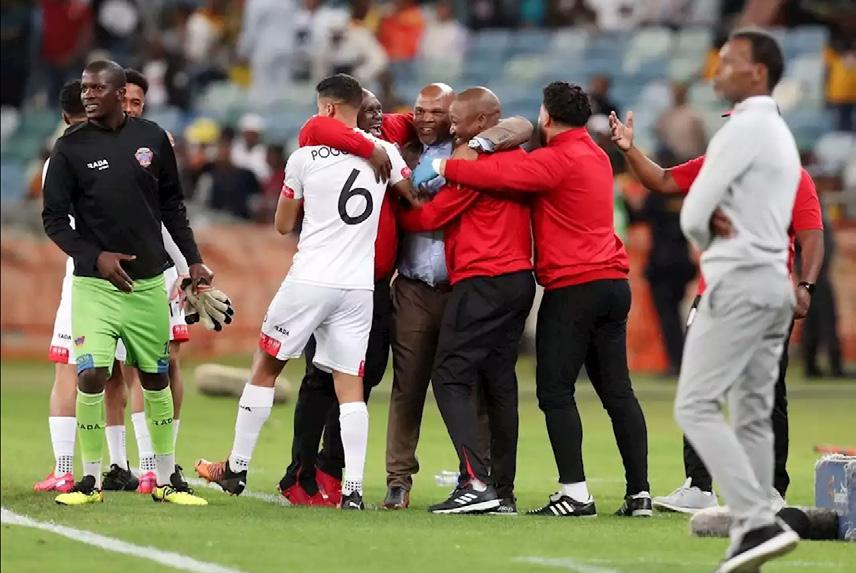
against AmaZulu, Marumo Gallants, Kaizer Chiefs and Sekhukhune United.
He led the Chilli boys to the fifth position on the log standings with 17 points from 11 fixtures, following the 12 points they grabbed from past games.
In his tenure, Cape Town City became the first team to topple off Chippa United from their winning
streak. However, the coach is the first manager to have won four consecu tive games this season's campaign.
"We are not concerned. If you play your normal football and stay posi tive on your plan, you will win more games and lose less," Coach Mmamila articulates on not being concerned about opposition teams figuring him out and bursting his bubble.
19SPORT
FRIDAY, OCTOBER 30-NOVEMBER12
Chippa United on a winning streak.
QATAR’S CONTROVERSIAL FIFA WORLD CUP 2022 BRACES FOR ACTIVISM BACKLASH
By Simon Chadwick
When Denmark plays at the men’s Fifa World Cup in Qatar, their shirts will mask the name and logo of their sponsor, the sportswear brand Hummel. One of the strips is all black, which Hummel described as the “colour of mourning”.
The company explained the unu sual design by directly referencing migrant construction worker deaths in Qatar, as well as the state’s much-ques tioned human rights record. A social media post said: “We don’t wish to be visible during a tournament that has cost thousands of people their lives.”
It added: “We support the Danish national team all the way, but that isn’t the same as supporting Qatar as a host nation.”
Hummel’s criticism of Qatar was not the first, and as the tournament gets closer, there will be more to come. Former Manchester United star Eric Cantona has said he won’t be watching the competition, and some French cities have banned screenings of matches in their public spaces.
But the response from Qatar to Hummel’s view seemed to demon
strate a change in tactics. In the past, the Qataris have often been slow in reacting to such criticisms. Yet within hours of Hummel voicing its con cerns, the organisation responsible for organising the event had issued a robust statement.
In it, the country’s Supreme Committee for Delivery and Legacy claimed that Qatar had implemented significant labour market reforms, adding that all countries, Denmark included, should focus on promoting human rights.

Such a strident response was note worthy, appearing to mark a develop ment in the nature, tone and speed of communications coming out of Qatar.
Officials have clearly been readying themselves for an intense period of scrutiny and activism at one of the most controversial World Cups in football’s history.
They have also been preparing for the possibility of the event being dis rupted, buying in everything from Moroccan police officers and Ameri can surveillance equipment to Turkish drones and Italian frigates.
It remains to be seen how these resources will be deployed, or whether they might be linked to the recent announcement that alcohol will be
sold for up to 19 hours a day.
When it comes to logistics too, Qatar has been practising. It has hosted several high-profile, mass-at tendance events to establish its level of preparedness, including the Fifa Club World Cup in 2019 and the Fifa Arab Cup in 2021.
Both tournaments were staged without major incidents. But a recent test event at the Lusail Iconic Stadium (which is due to stage the final match on 18 December) was less encour aging, with water shortages, faulty air conditioning and the need for hour-long walks to the stadium in 35°C heat.
Such obstacles are not insurmount able before November’s opening game between Qatar and Ecuador.
But there is little margin for error in staging sports events of this nature.
In March, the F1 Grand Prix in Saudi Arabia was almost cancelled after a Houthi drone attack, while in May, crowd management issues caused serious problems at the UEFA Champions League Final in France.
Game on A major challenge could simply be the volume of visitors, with some sug gesting more than 1.2 million people
will travel to Qatar over the period November to December.
For a country with a population of three million, this is a huge influx that will test the resilience of critical infrastructure, including roads, public transport, water supply and sewage capacity.
Already, some immigrant workers have been told to leave Qatar and only return once the tournament is over. Government workers have been told to work from home during the World Cup, and schools, colleges and universities will be closed.
Fearful of congestion, the Qatari government will stop traffic from entering Doha on a Friday (often the busiest day of the week) and is cur rently testing 700 World Cup-branded electric buses in anticipation of poten tial transport issues.
And, as I discovered on a visit in September, with just weeks to go before kick-off, significant sections of Doha’s streets are inaccessible as the country belatedly seeks to upgrade its water and sewerage system.
During that trip, I was struck by the scale of infrastructural development that has taken place since I was last in Qatar, before the pandemic.
The city seemed a lot quieter than
before, which a taxi driver told me was because local people have been instructed to either leave the country or stay away from the capital as final preparations take place.
In some places, roads were still unfinished, as were several areas where football fans are expected to congregate.
Among some migrant workers I spoke to, issues remained of long working hours and low pay. But both they and others talked, almost with out exception, of their excitement about the tournament.
That many of them will be una ble to afford match tickets will not concern the Qatari authorities. Its 12 years of planning for the World Cup have been about nation-building ambitions, projecting soft power and changing international perceptions.
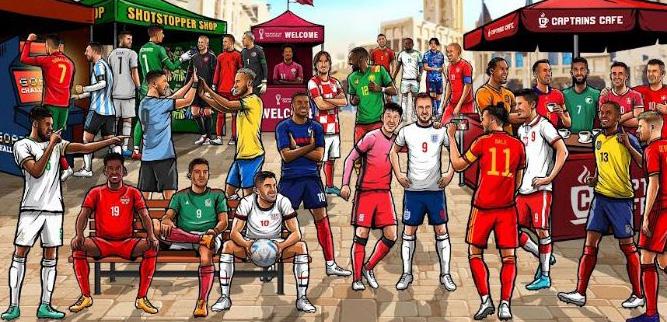
As it races ahead with final prepara tions, there is not long to go before the Doha government decides whether its massive gamble has paid off. – daily maverick.co.za
Simon Chadwick is a professor of sport and geopolitical economy at Skema Business School. This story was first published by The Conversation.
20 — { sportdesk@thetelegramlive.co.za} — FRIDAY, OCTOBER 30-NOVEMBER12, 2022 — @ telegramrsaT he Telegram ZA DARE WHEN OTHERS DON’T






















 By Molefi Sompane
By Molefi Sompane

 By Mariel Müller
By Mariel Müller





























